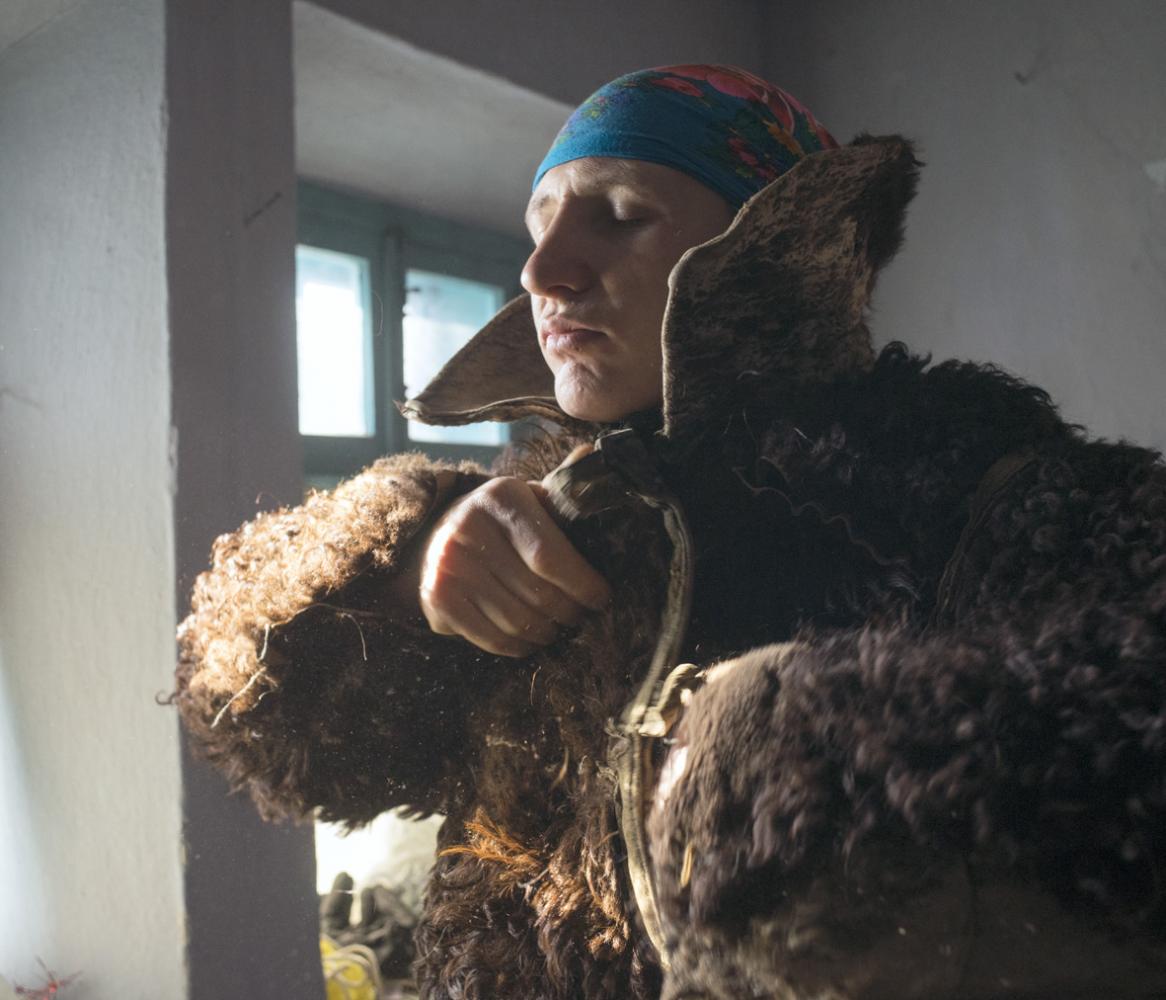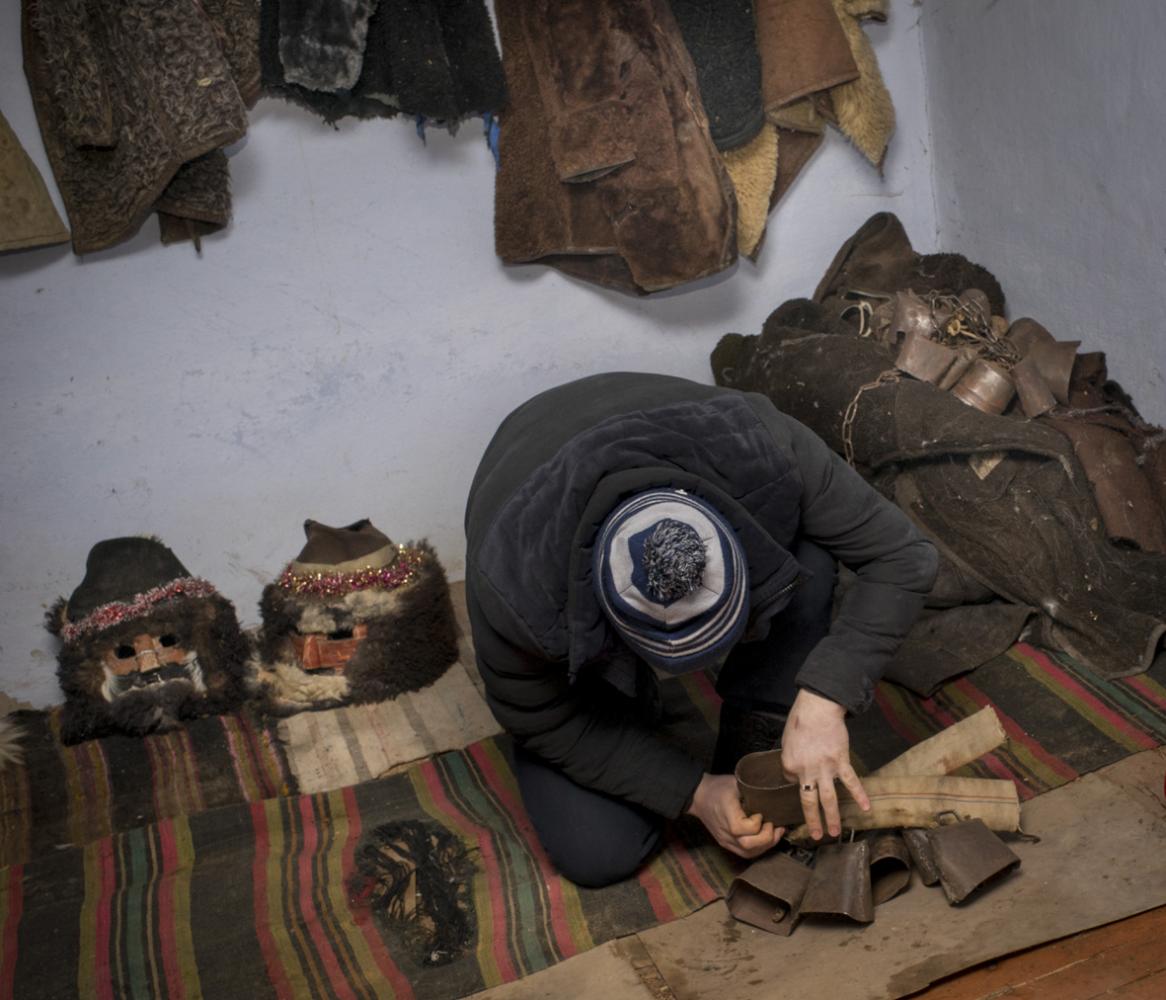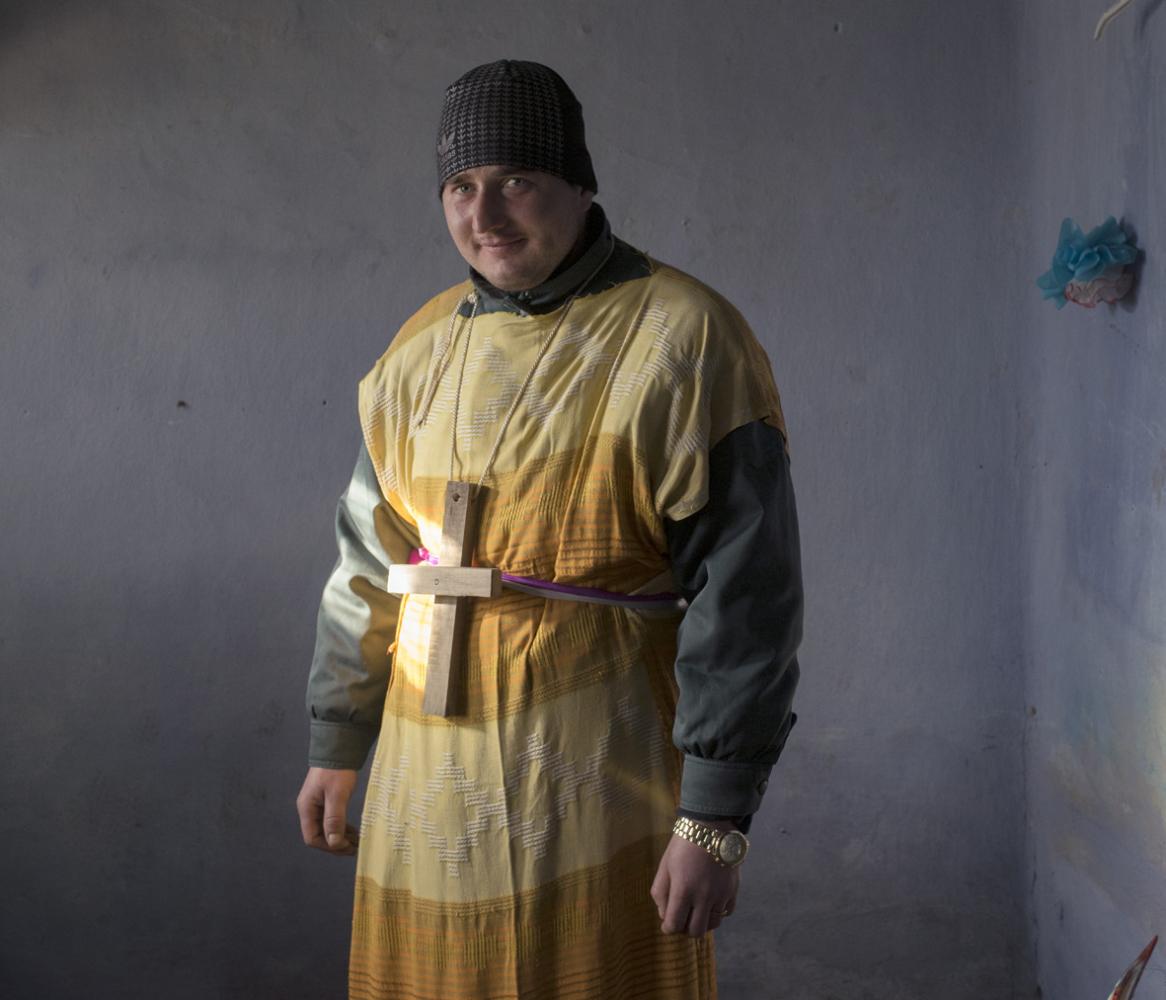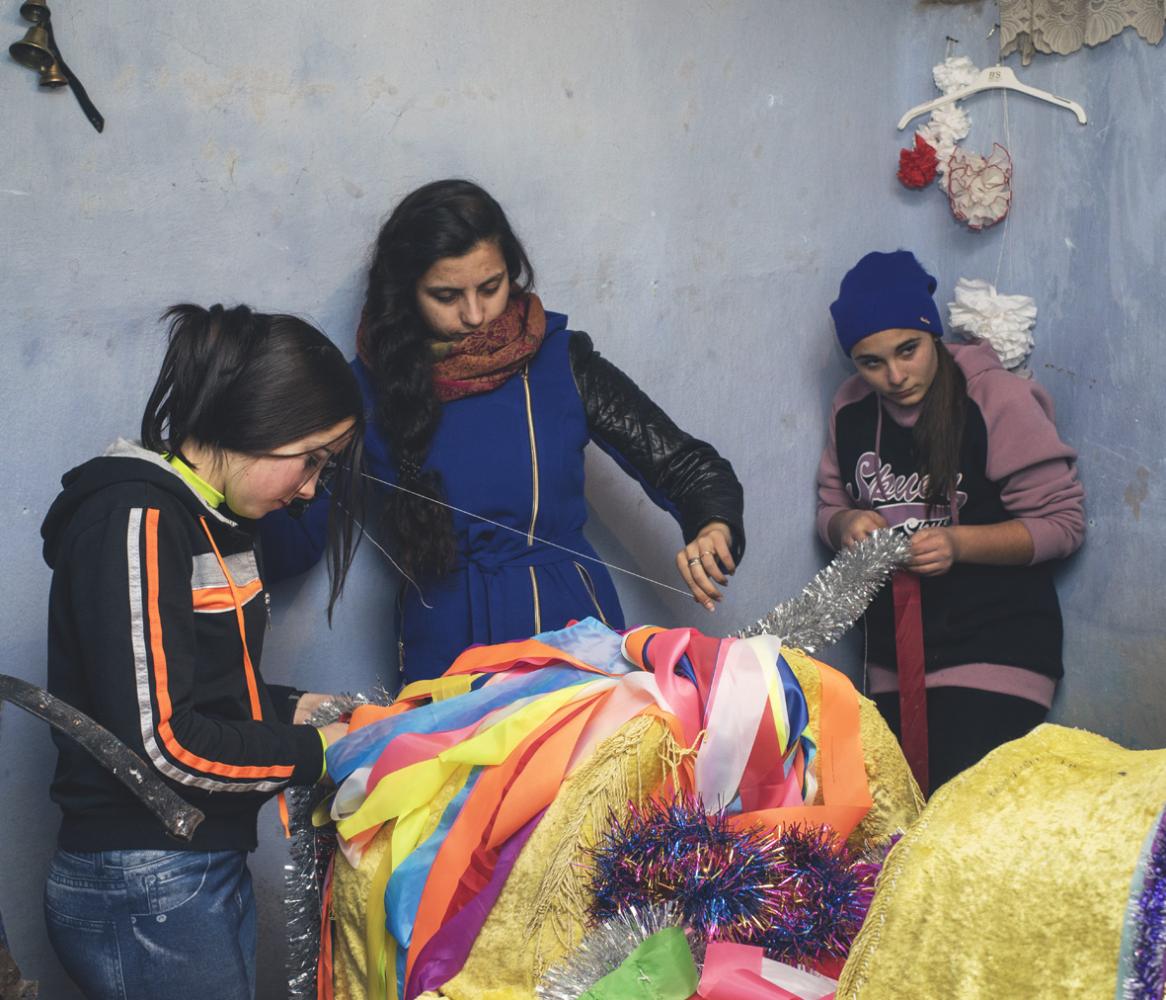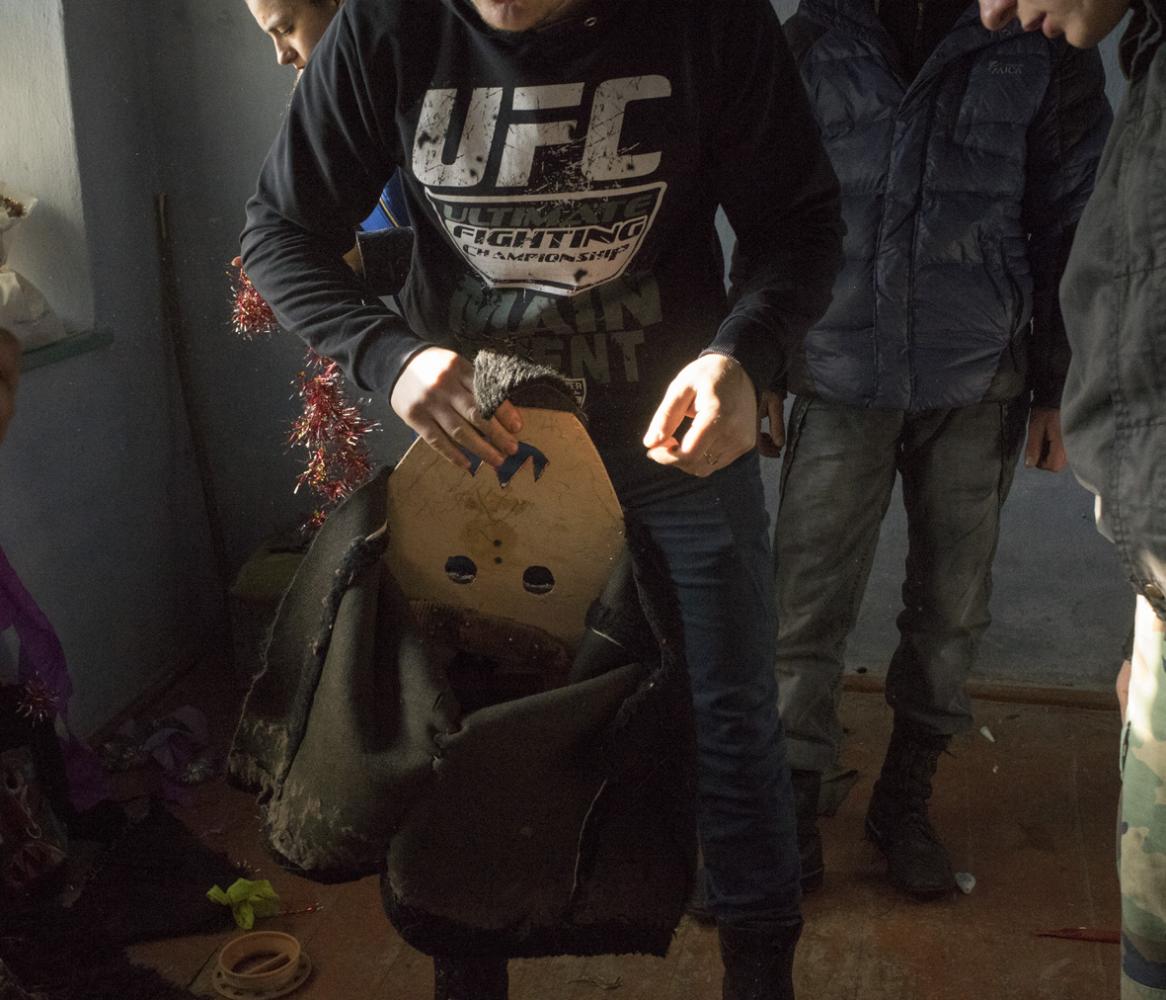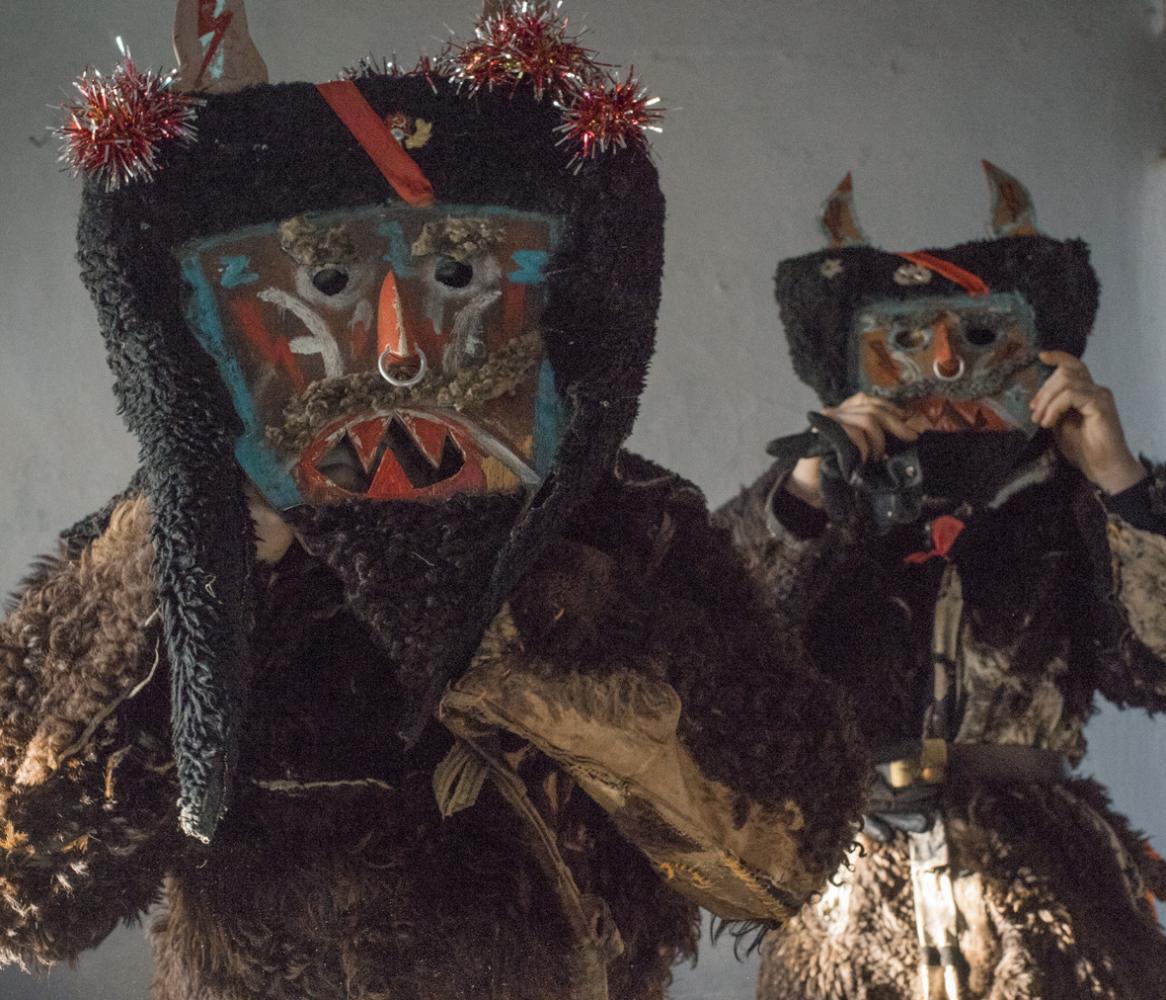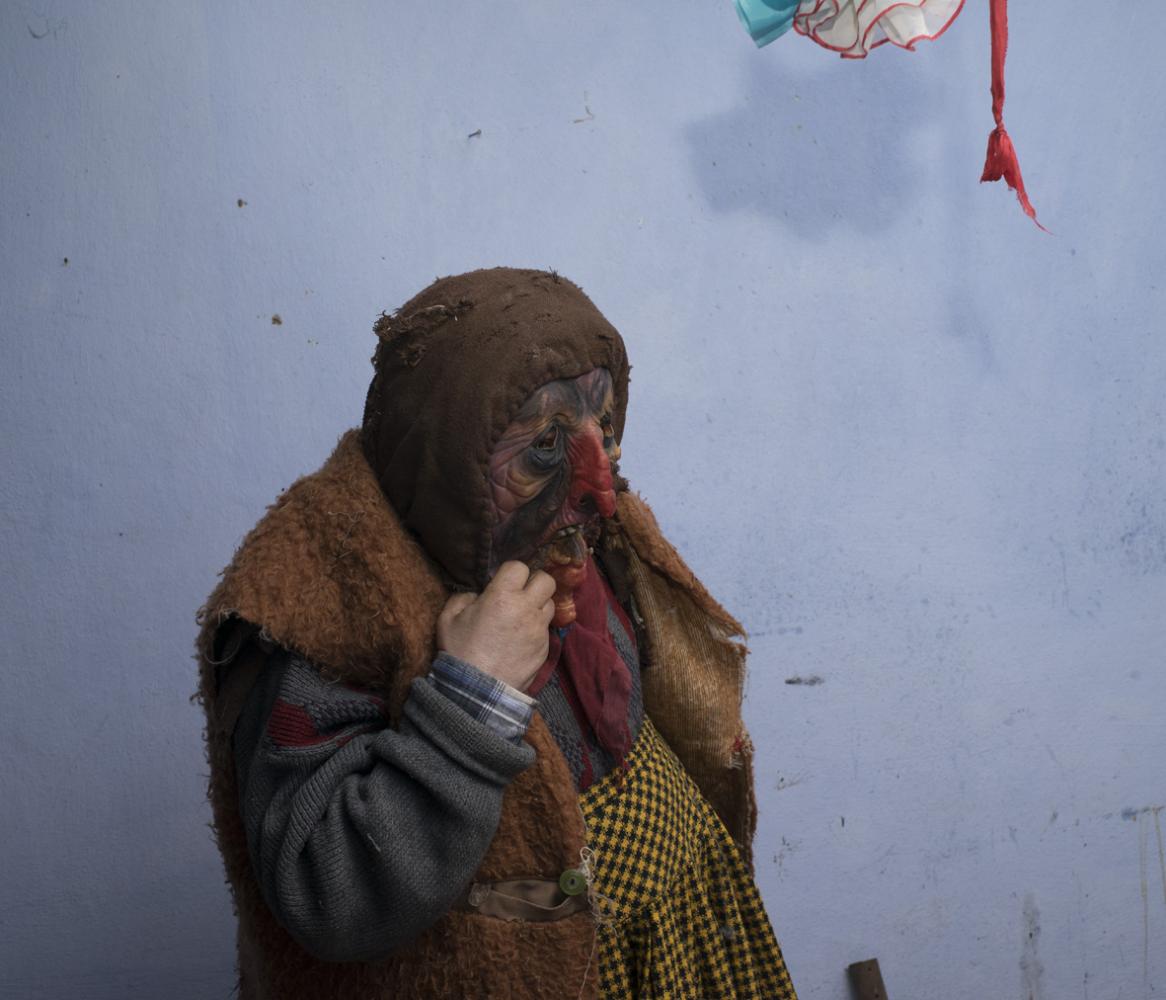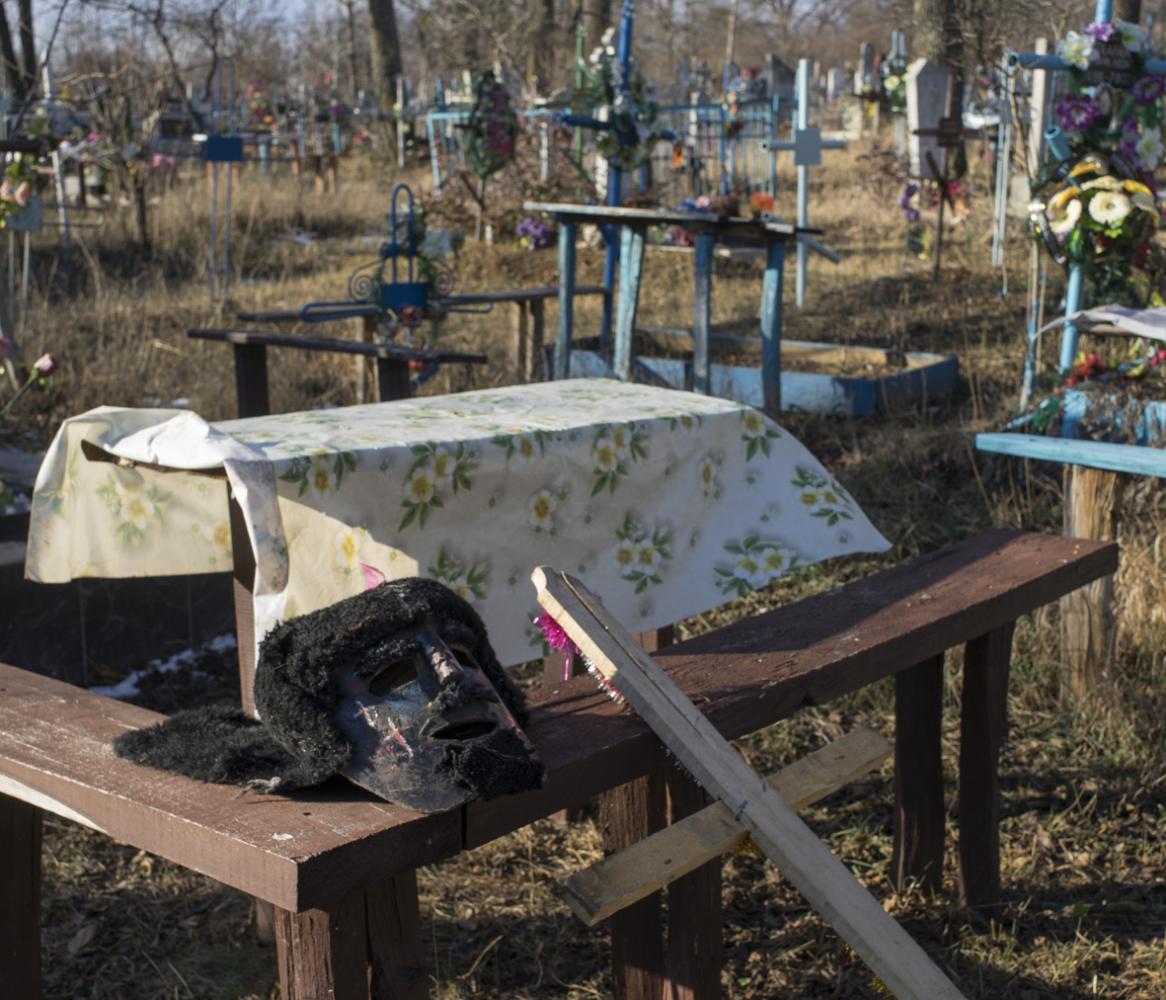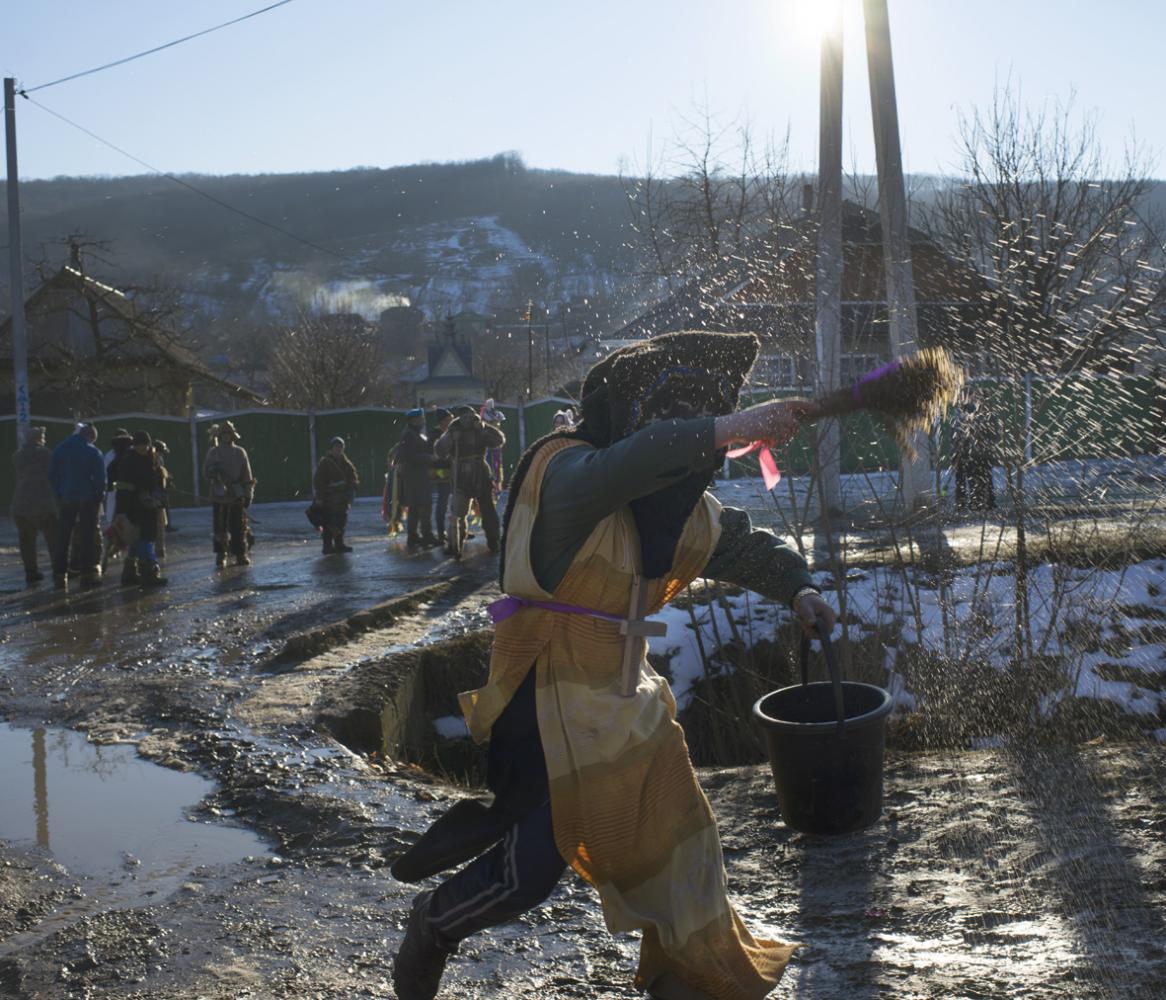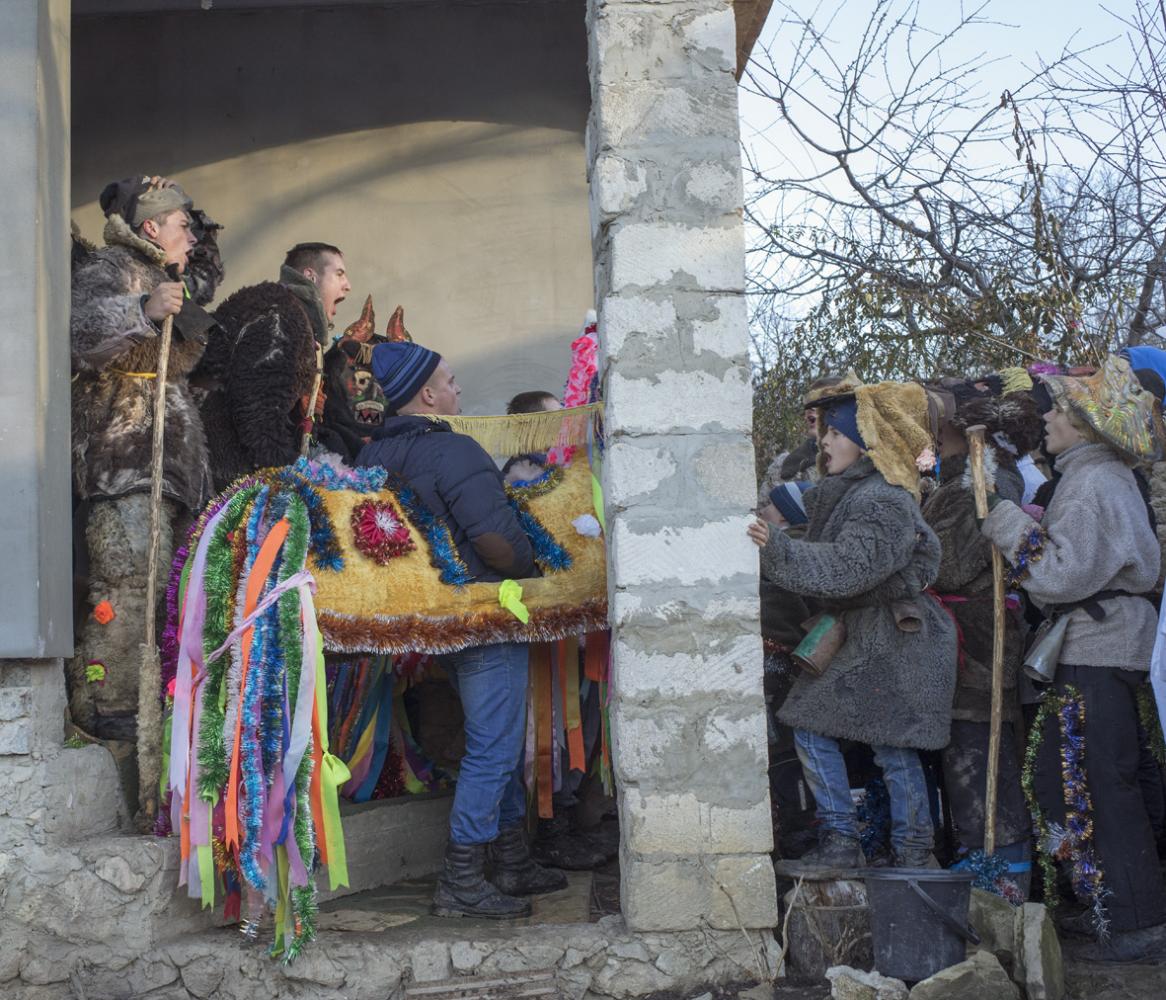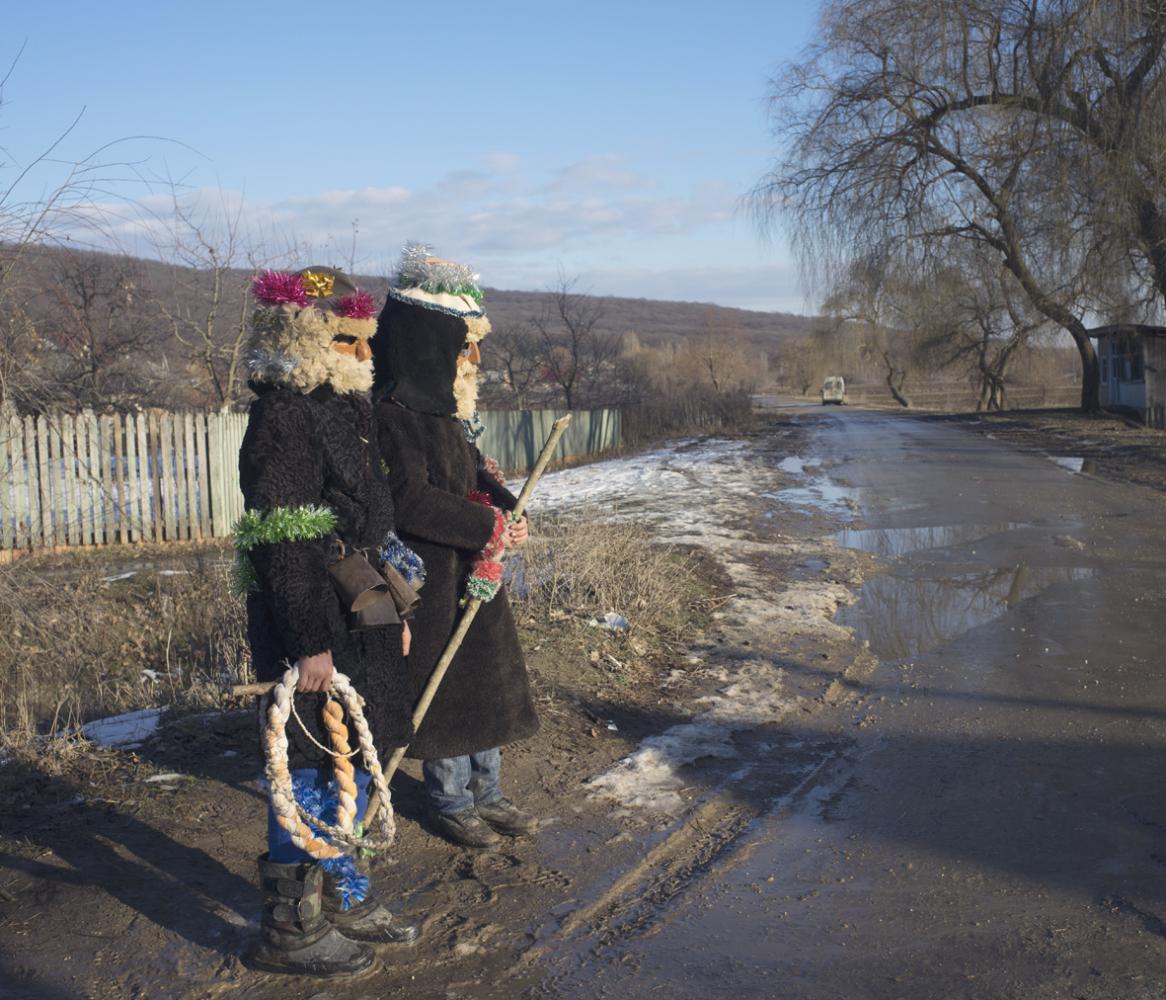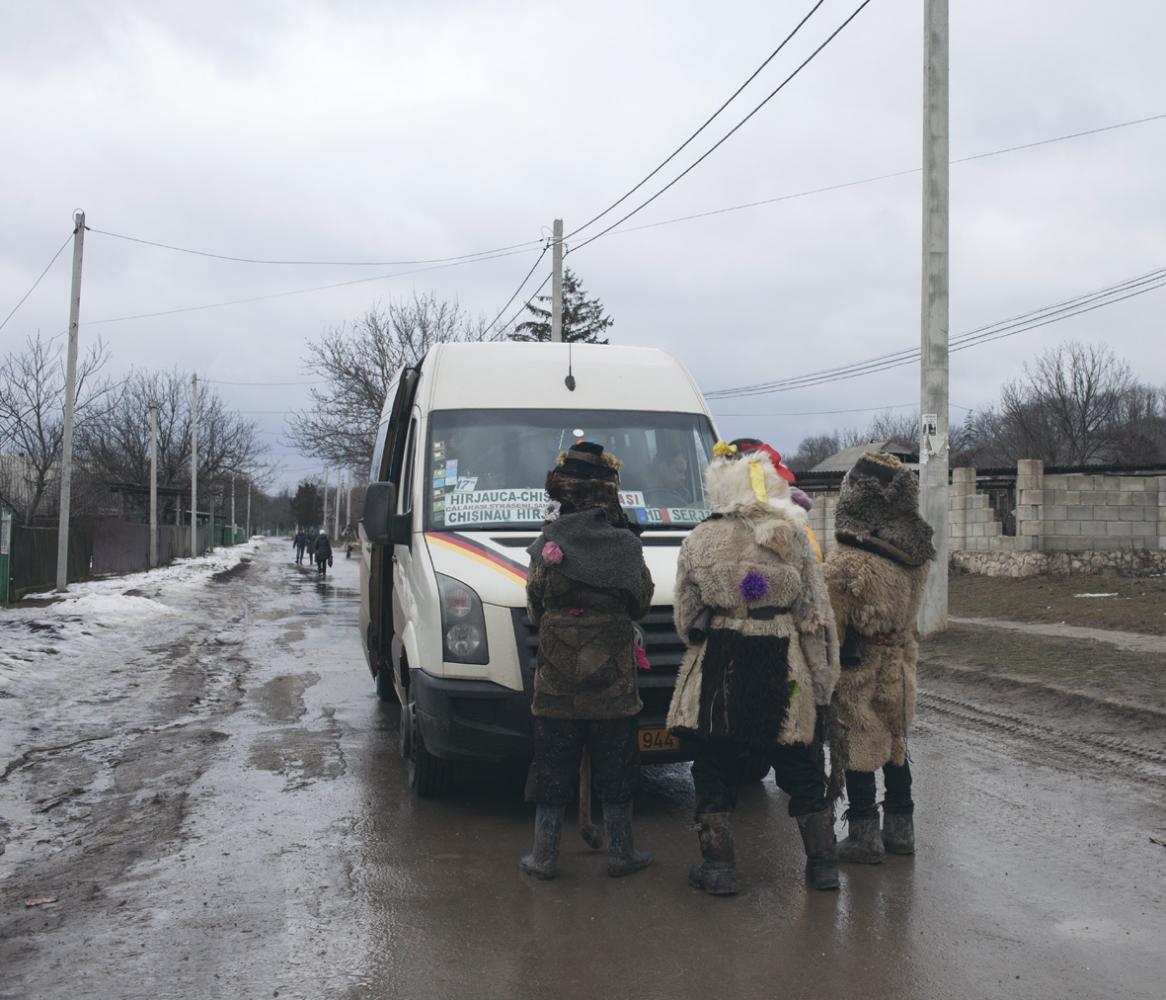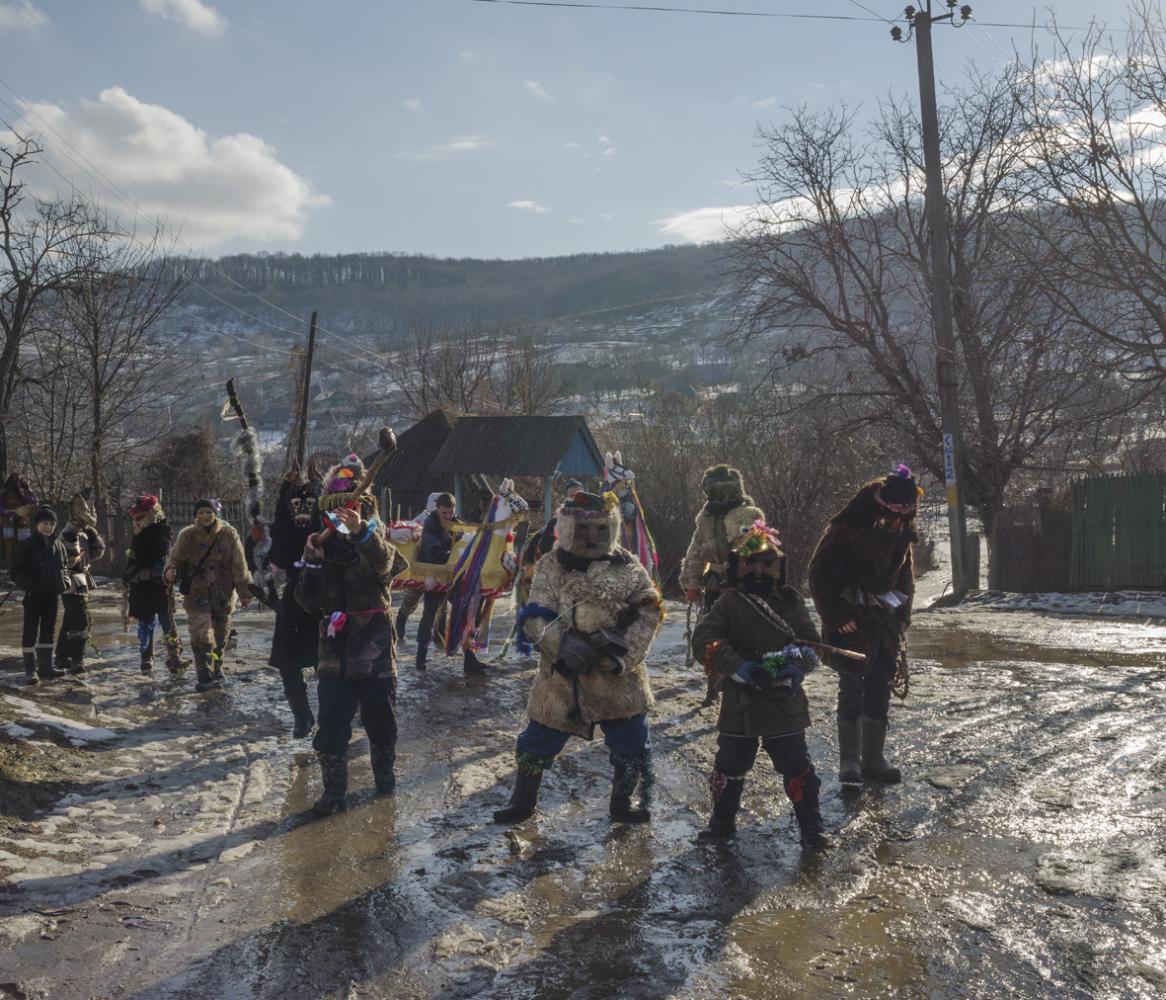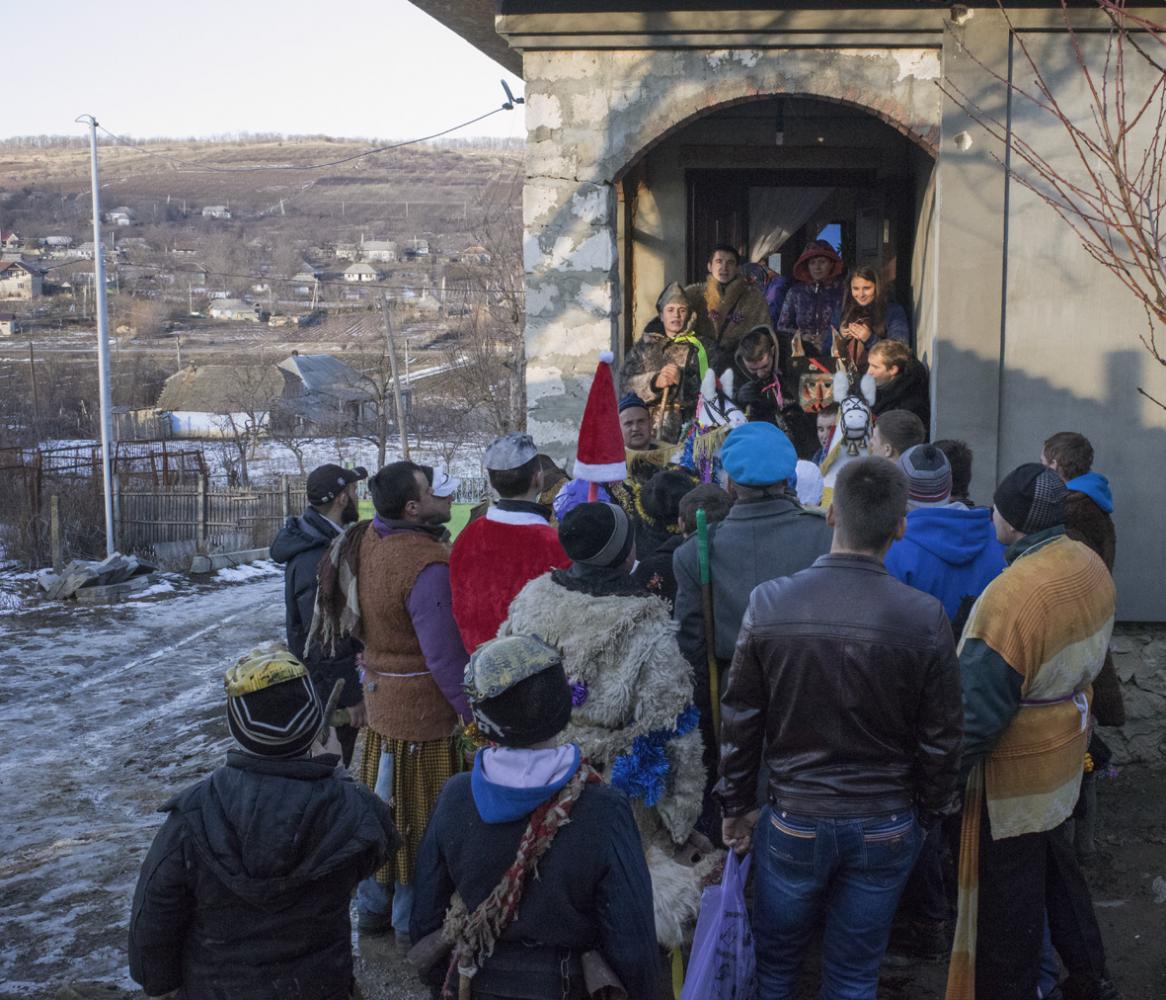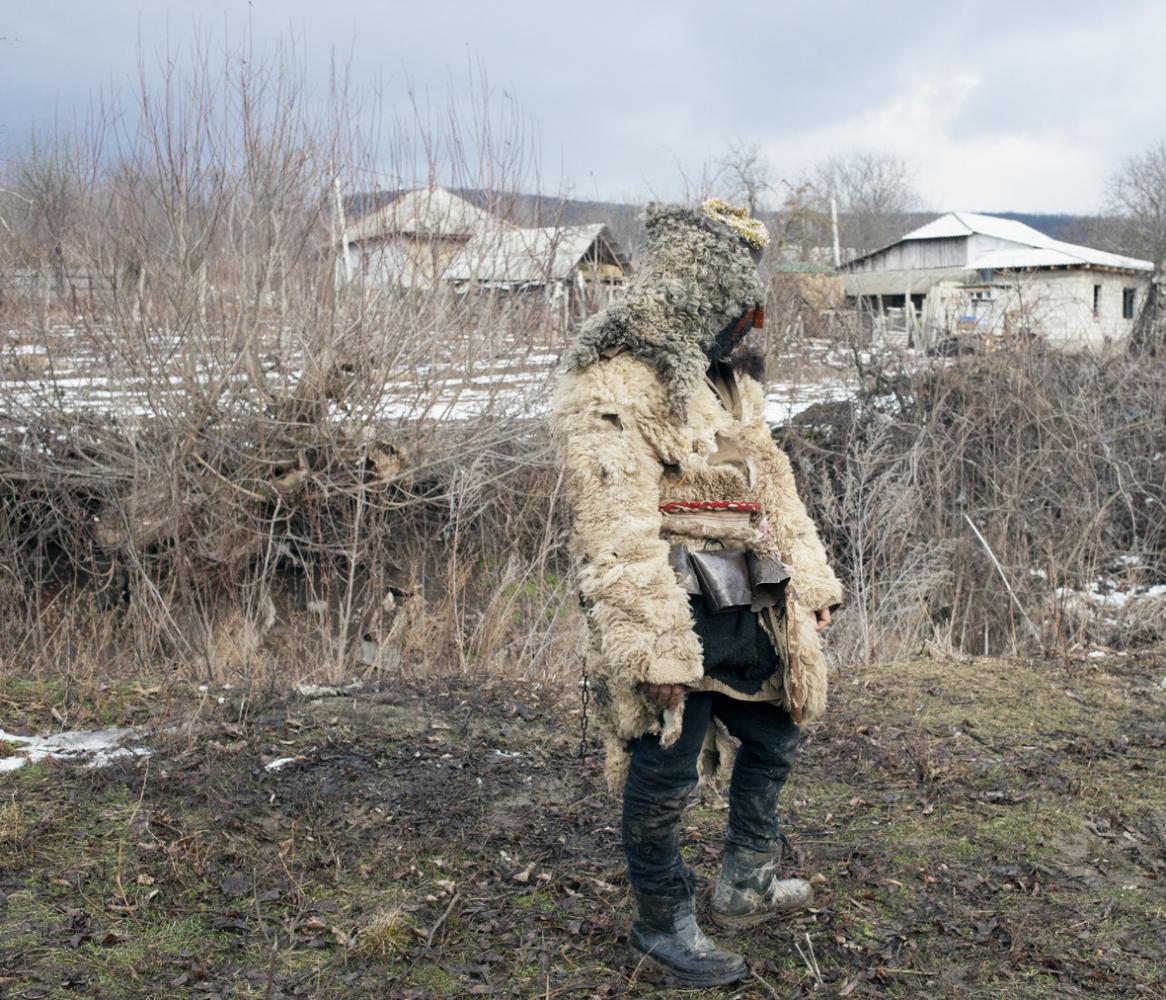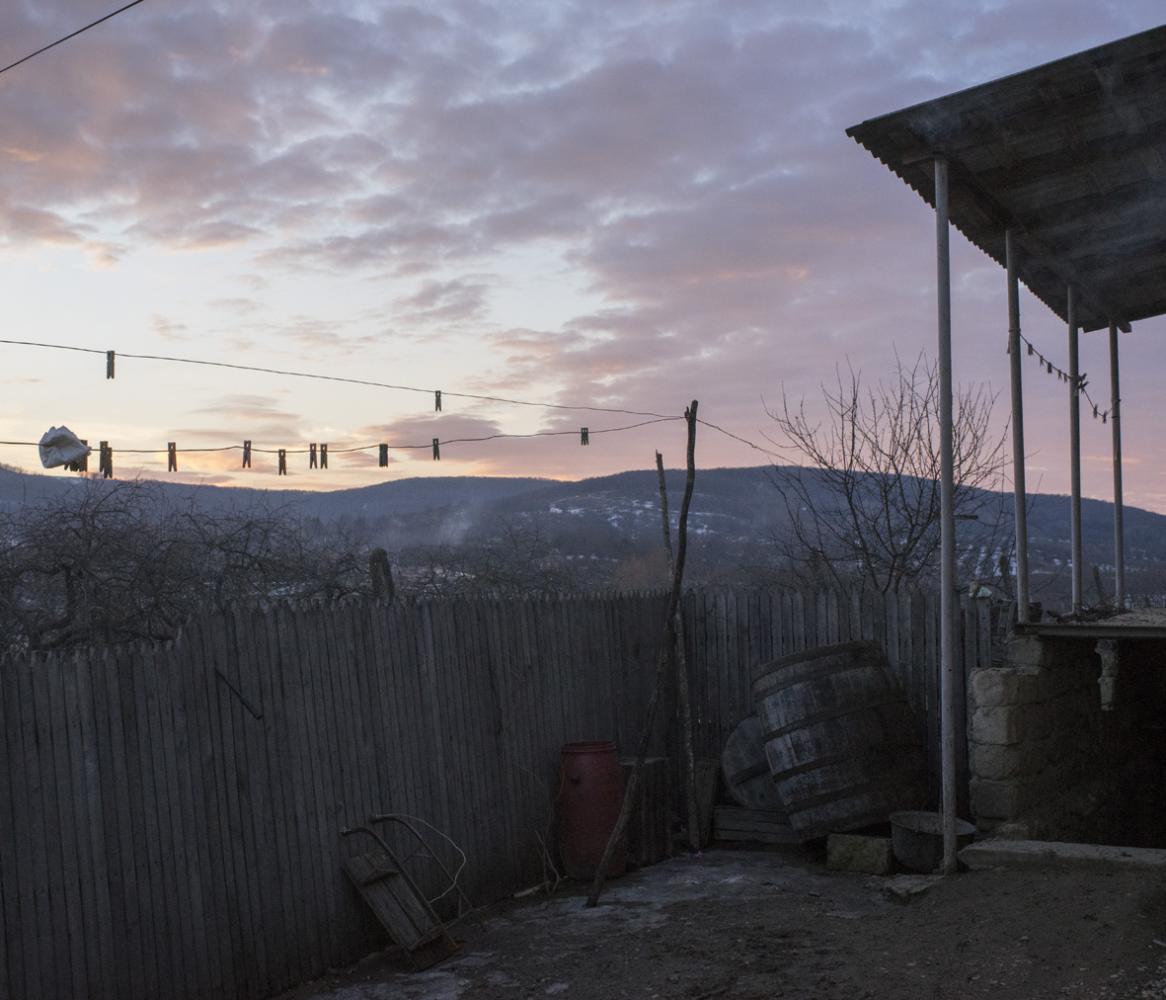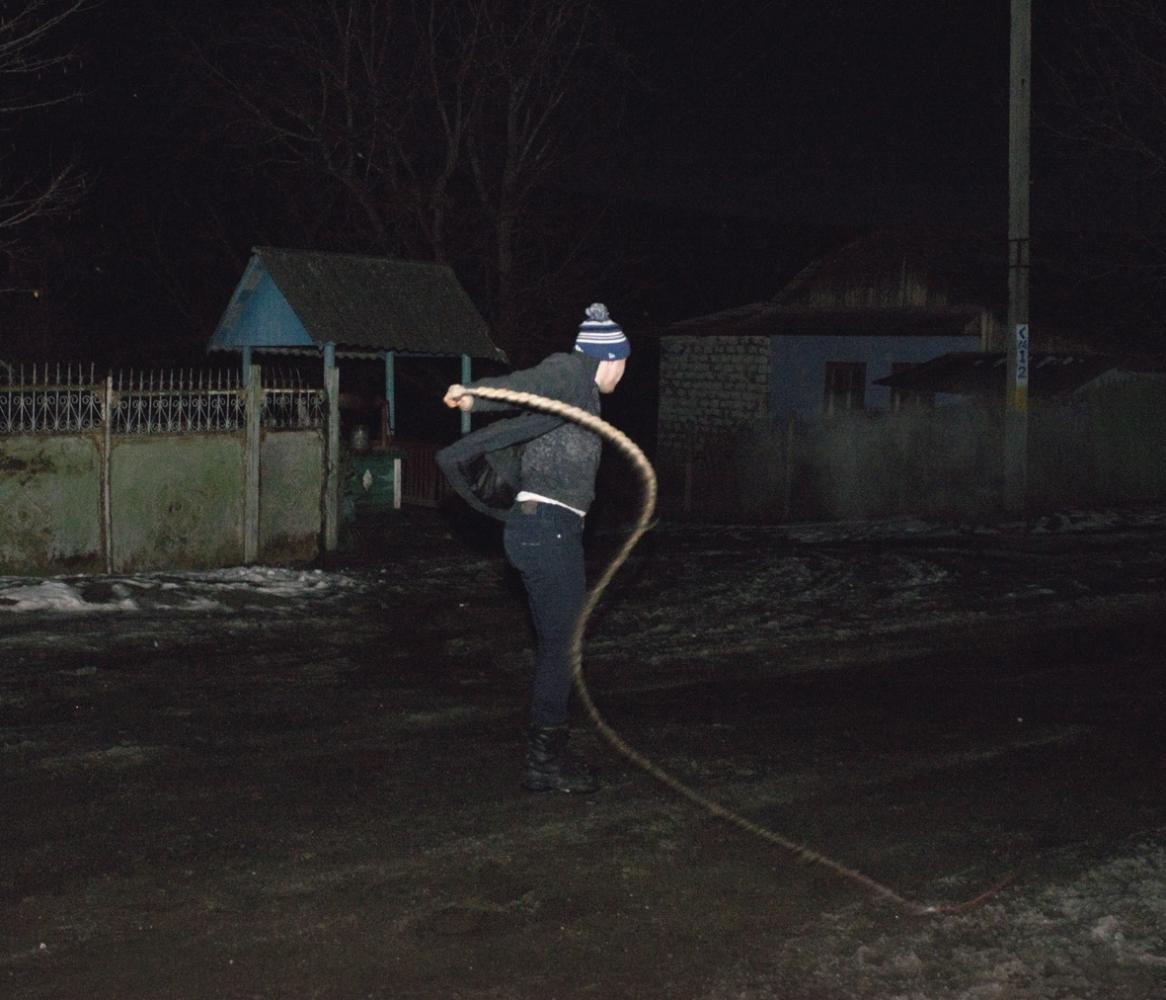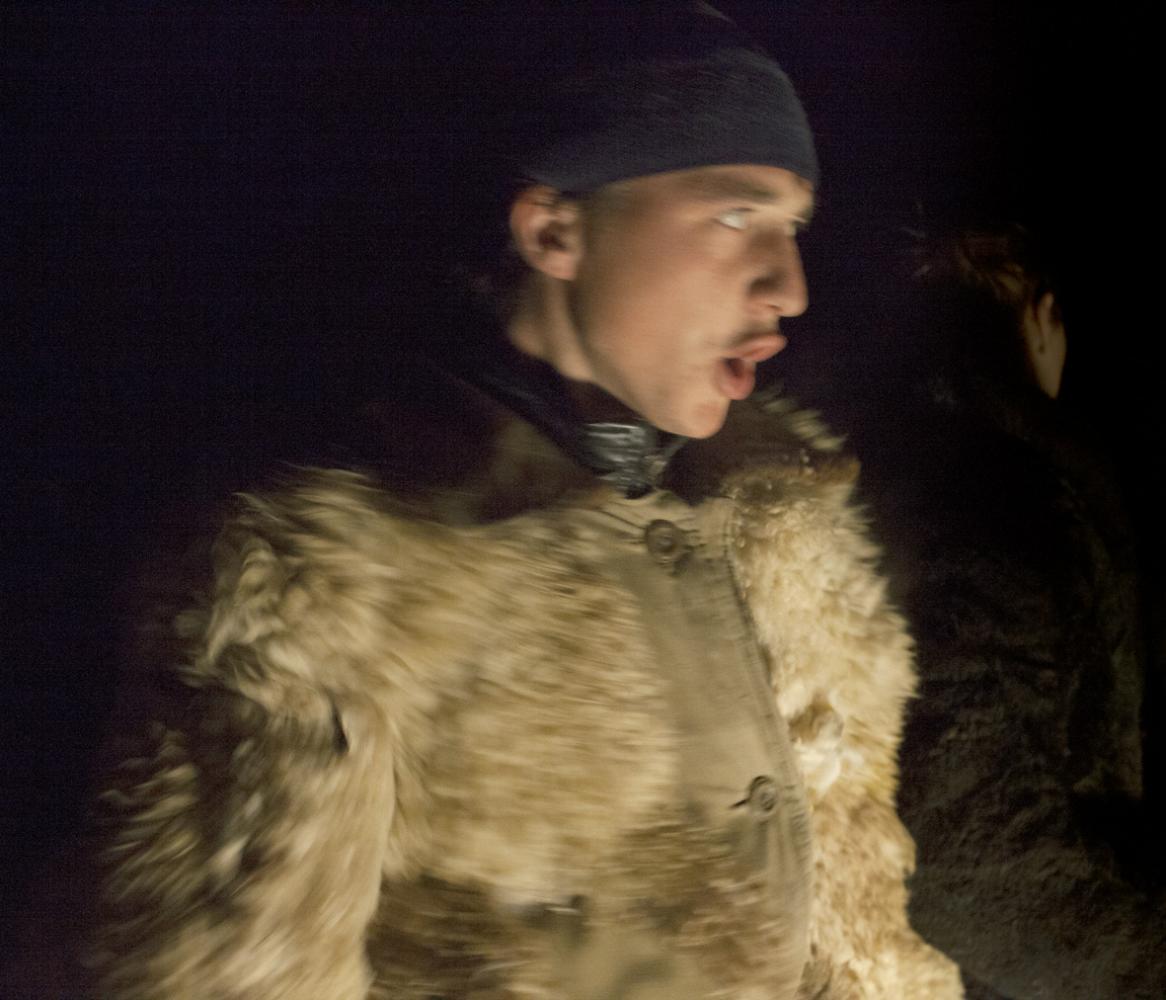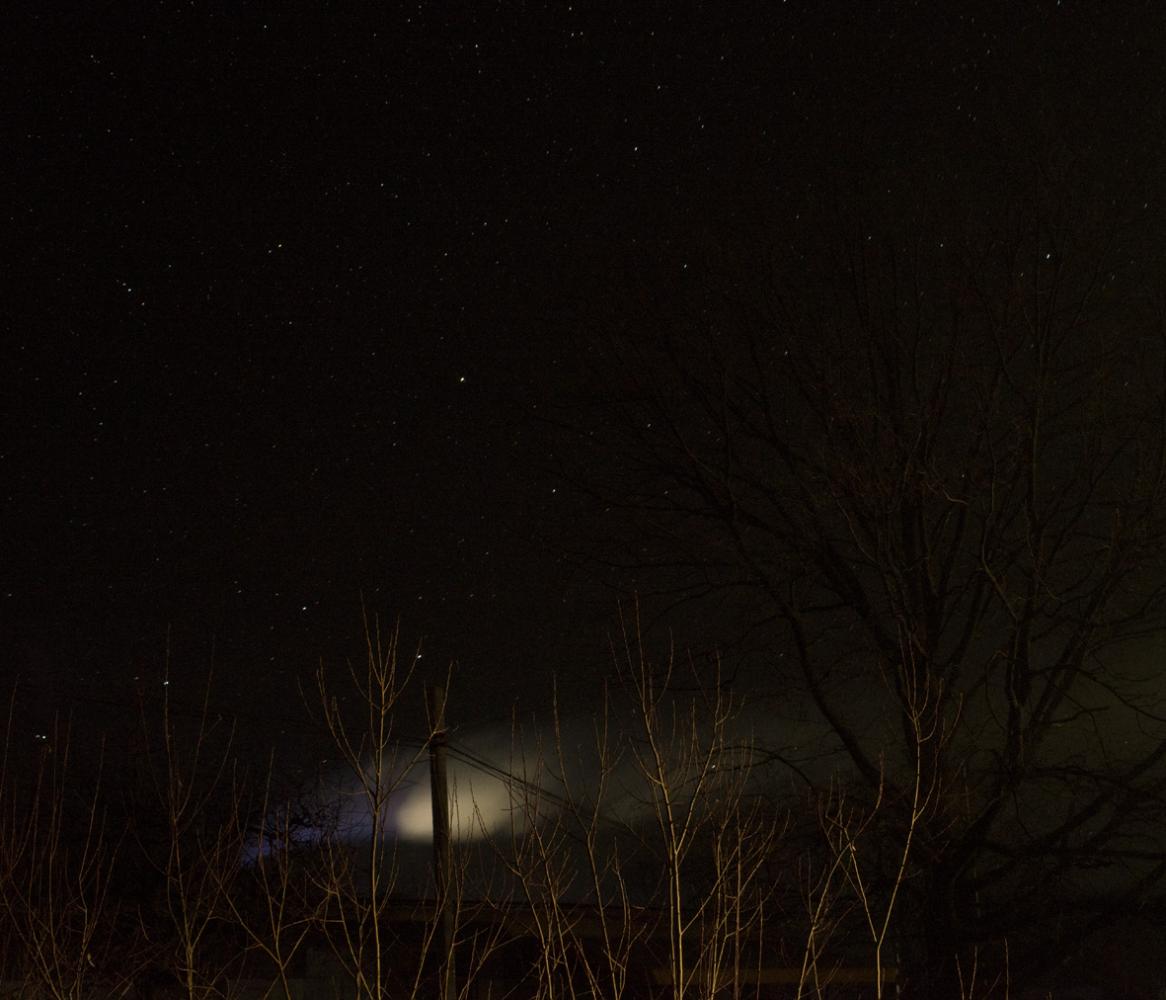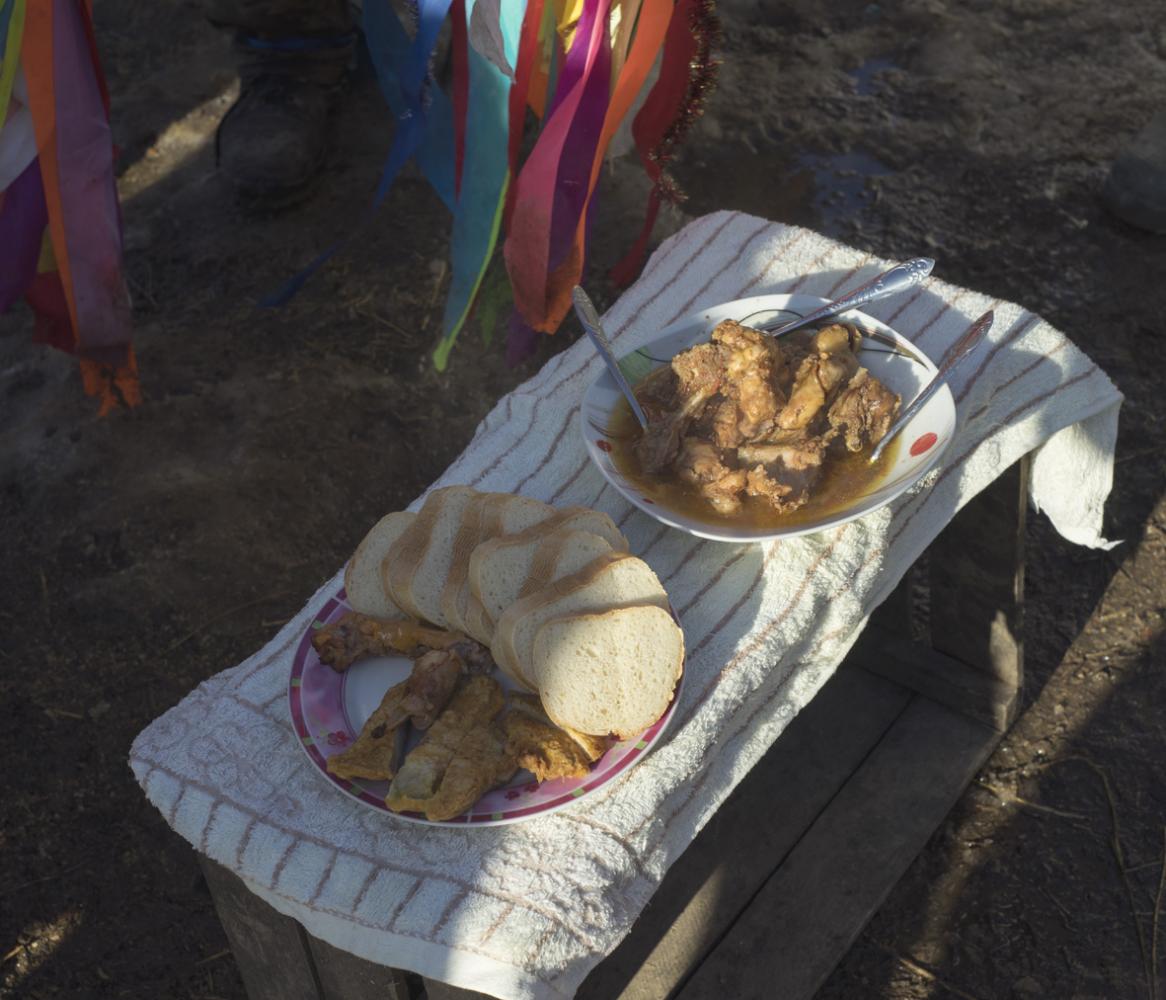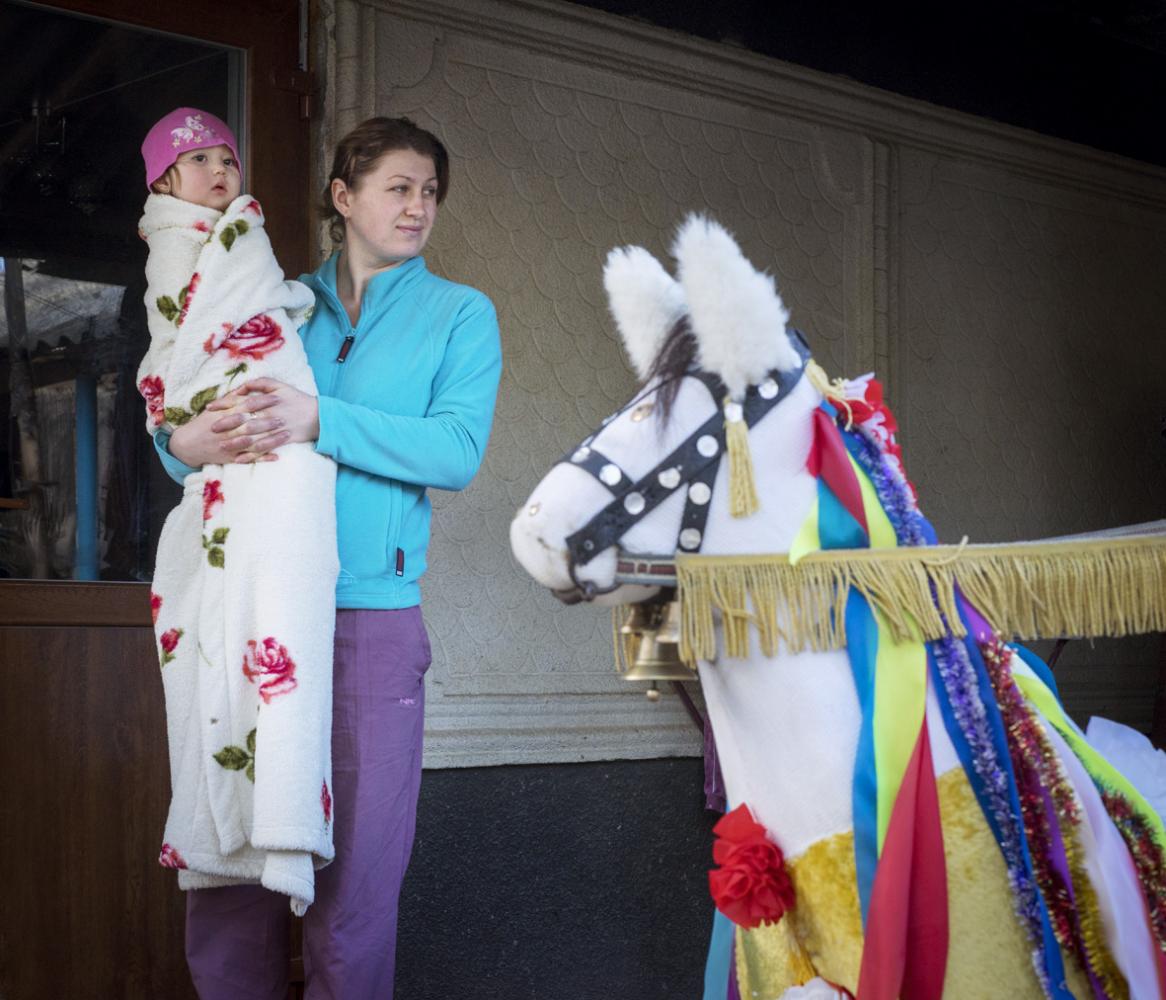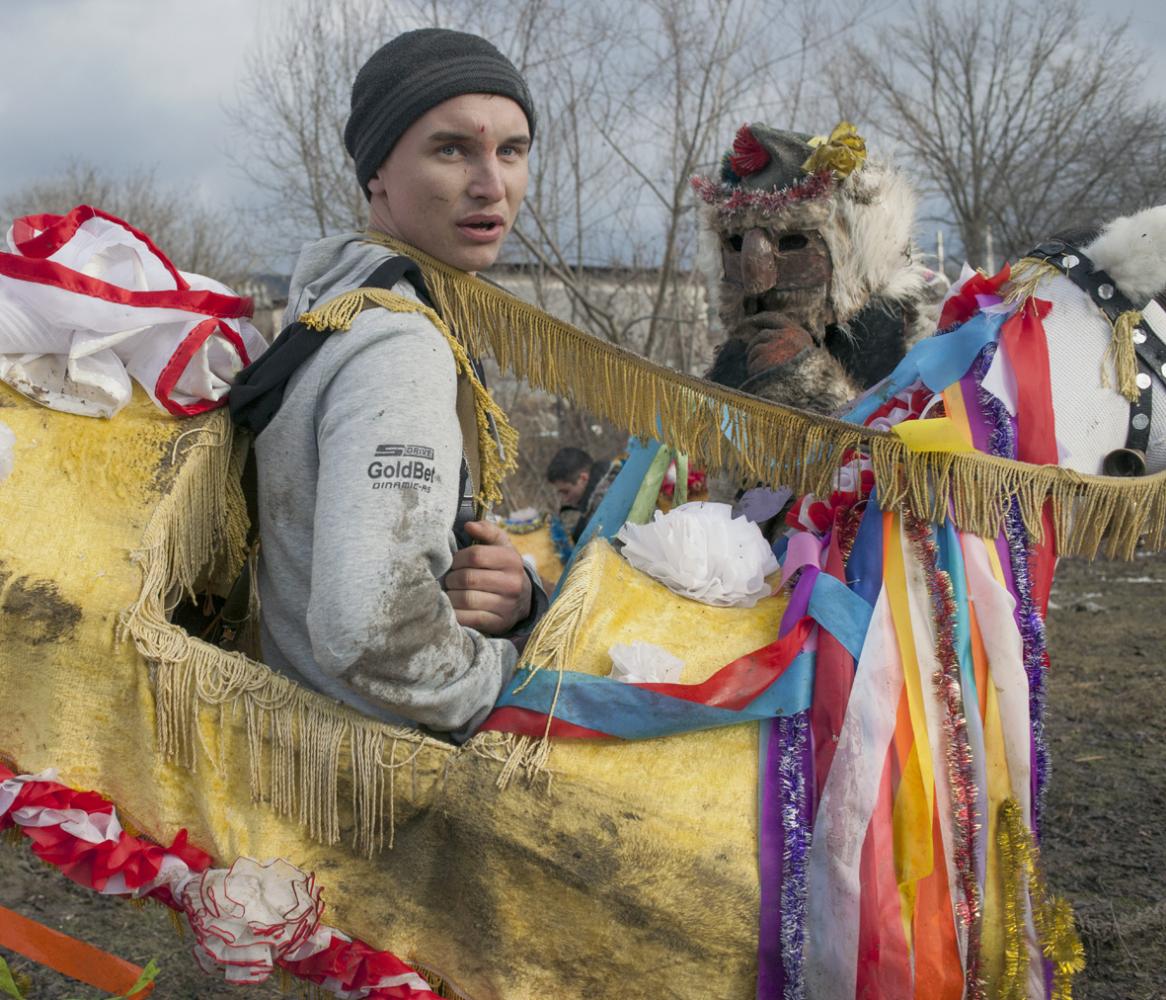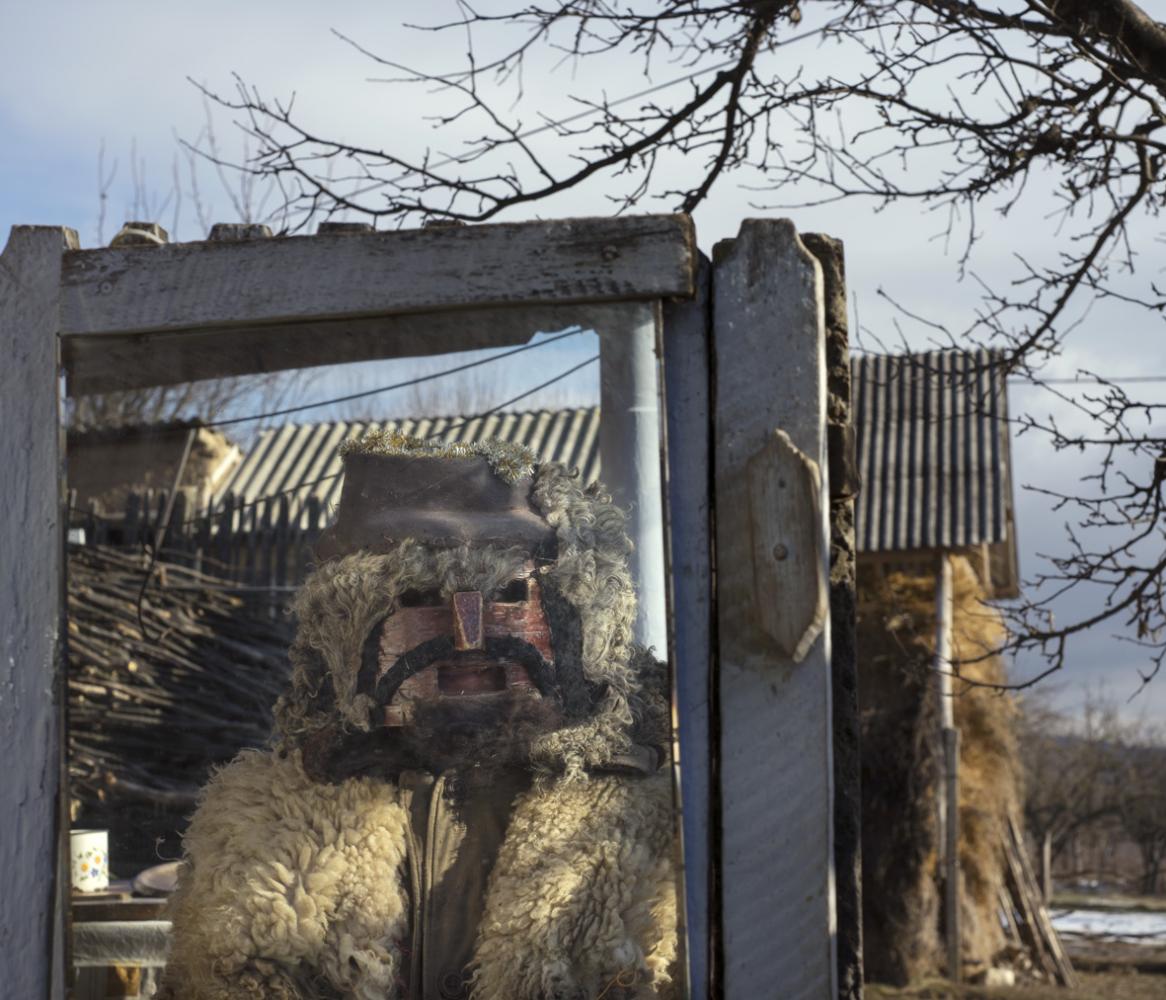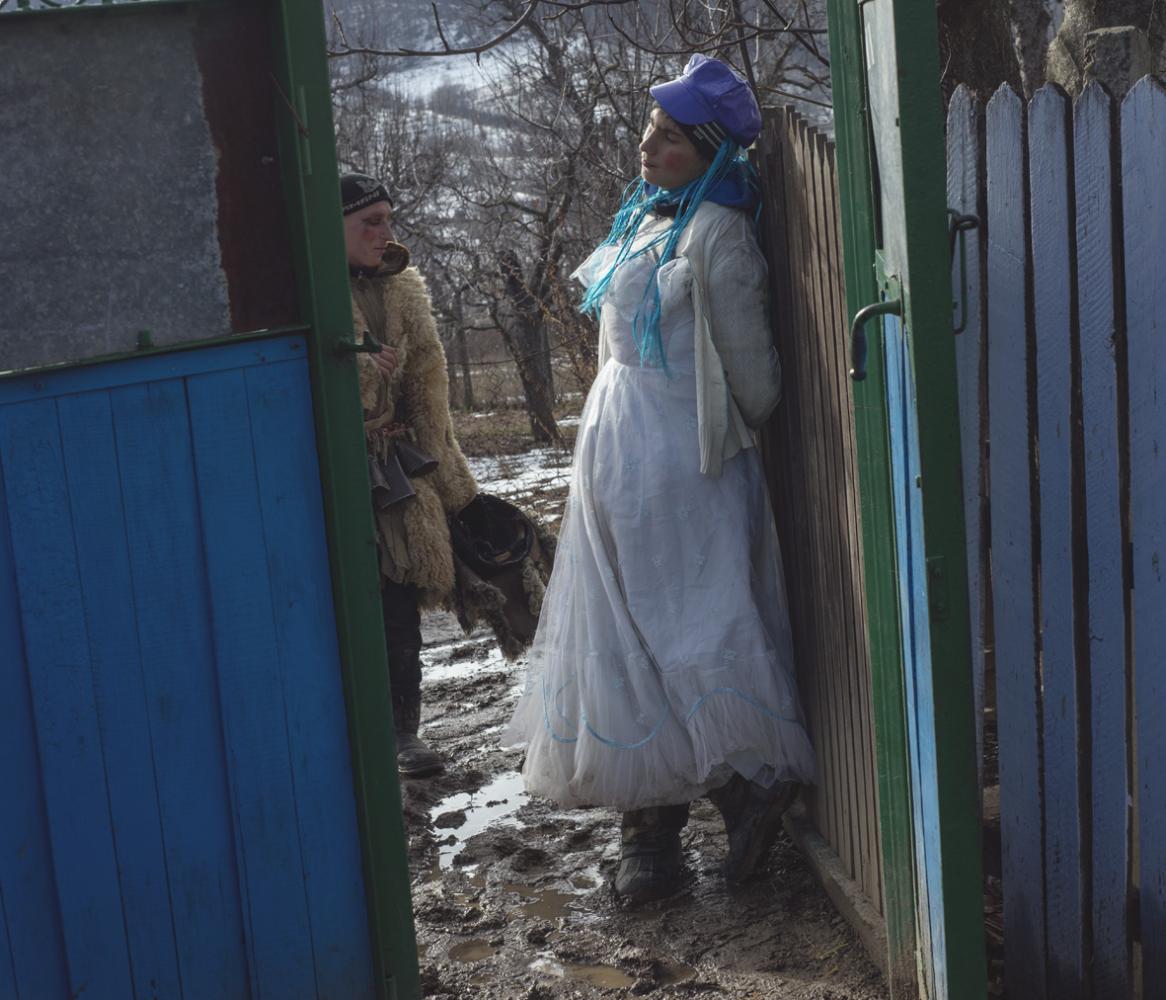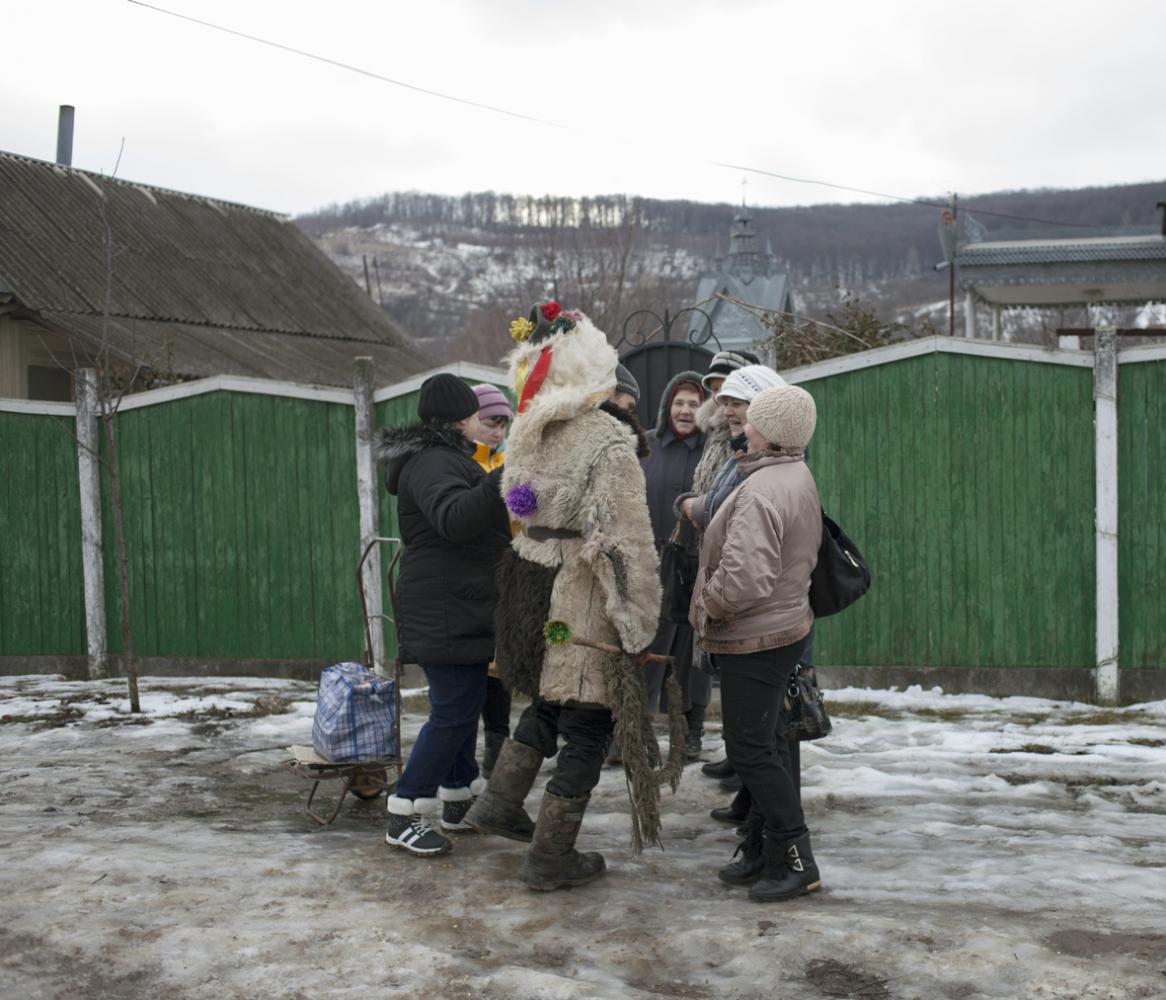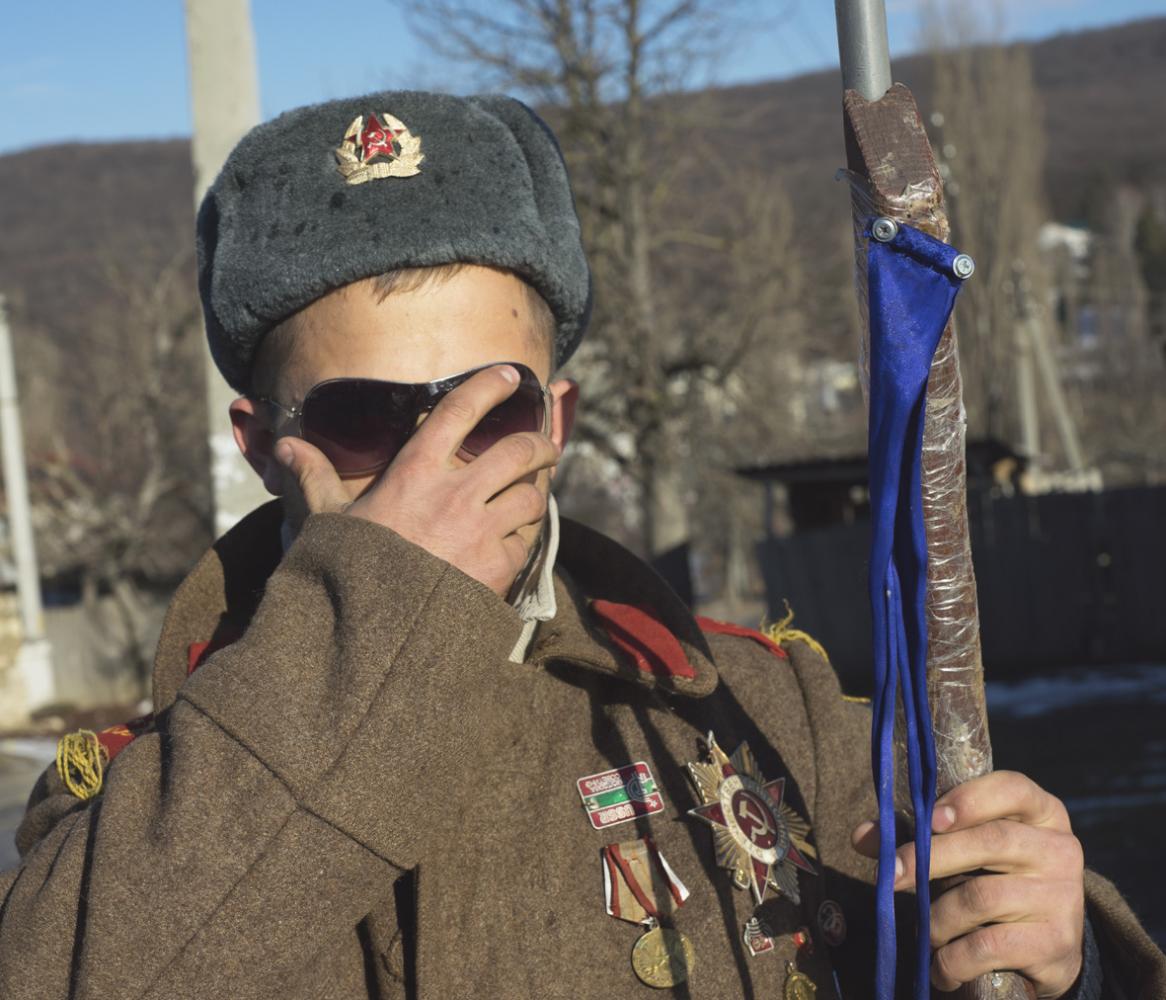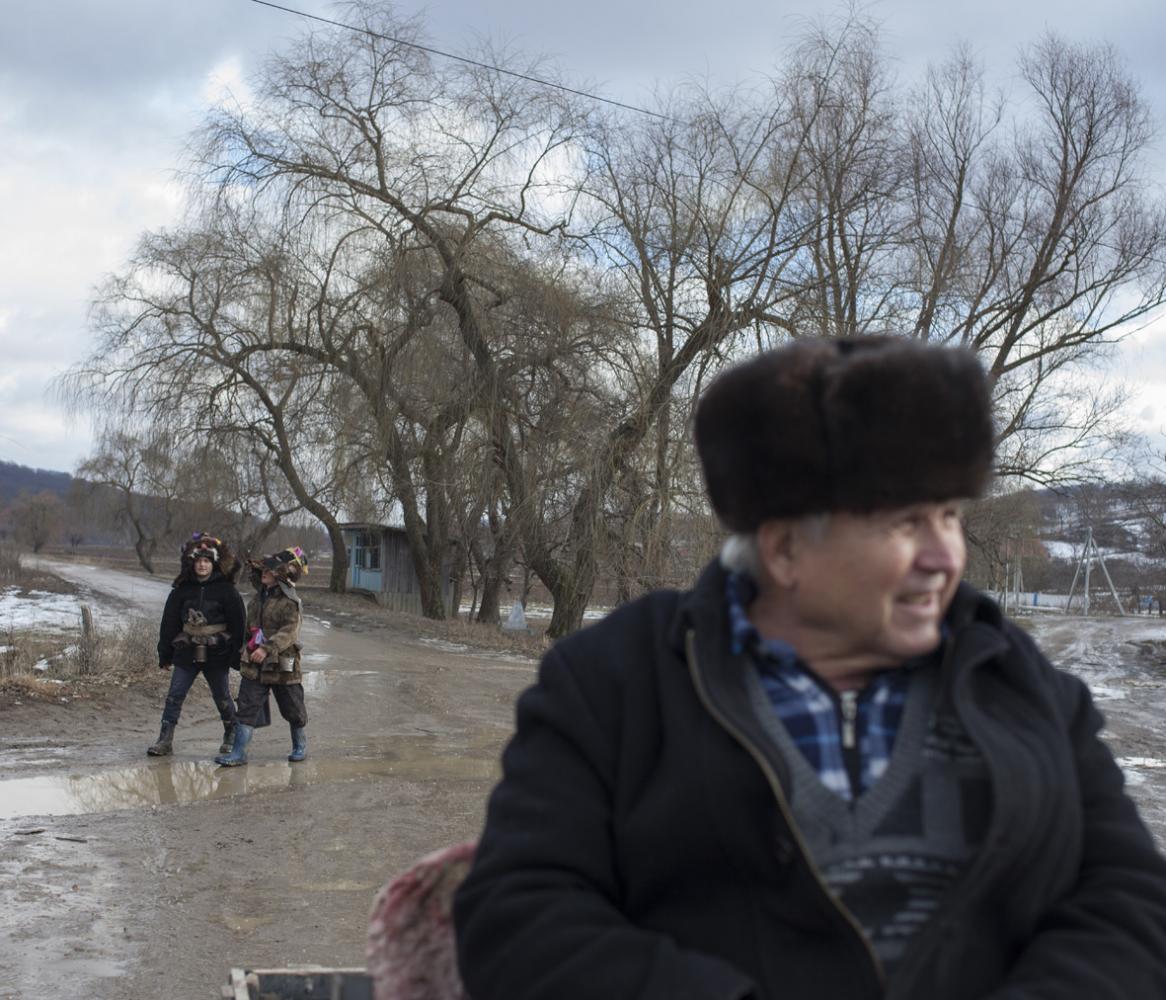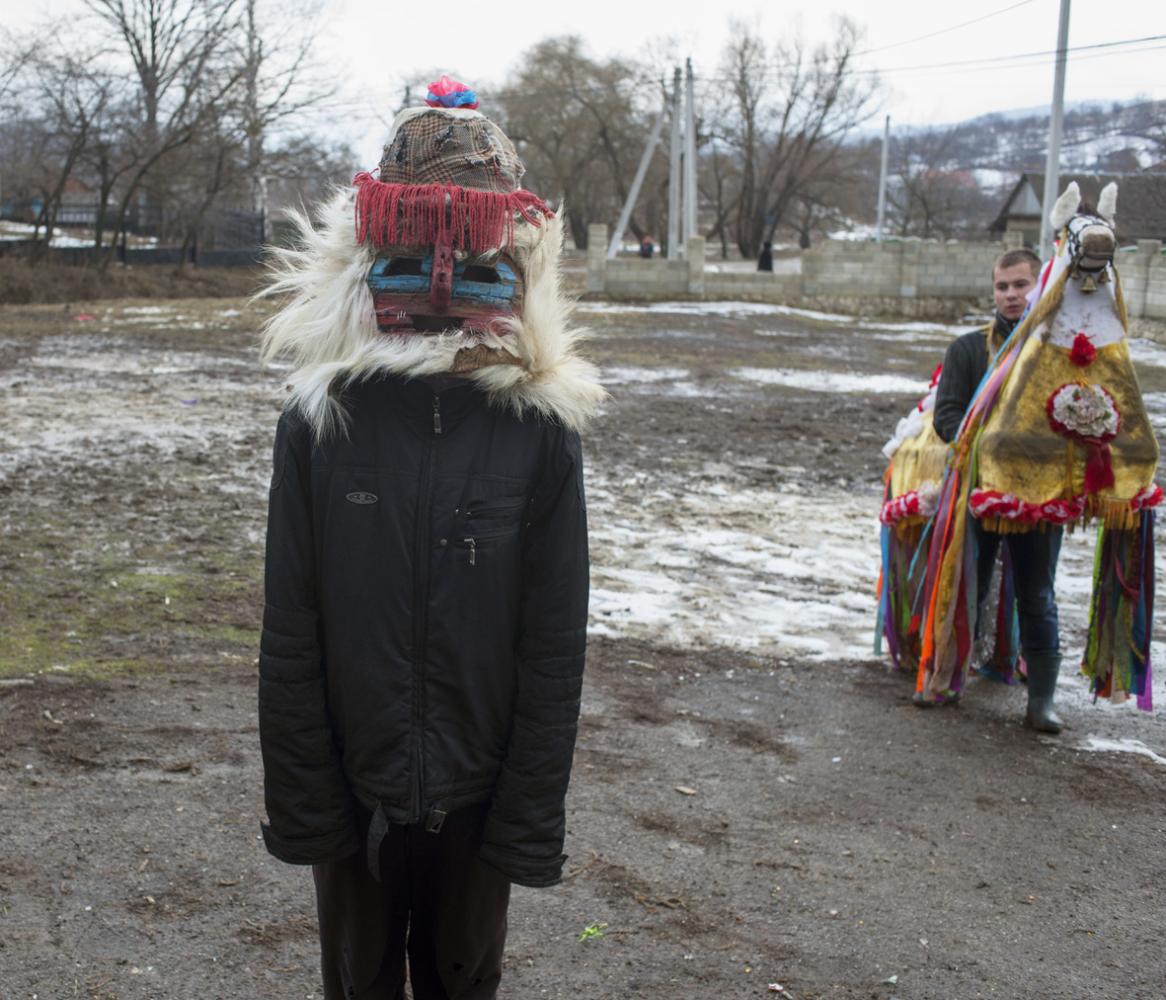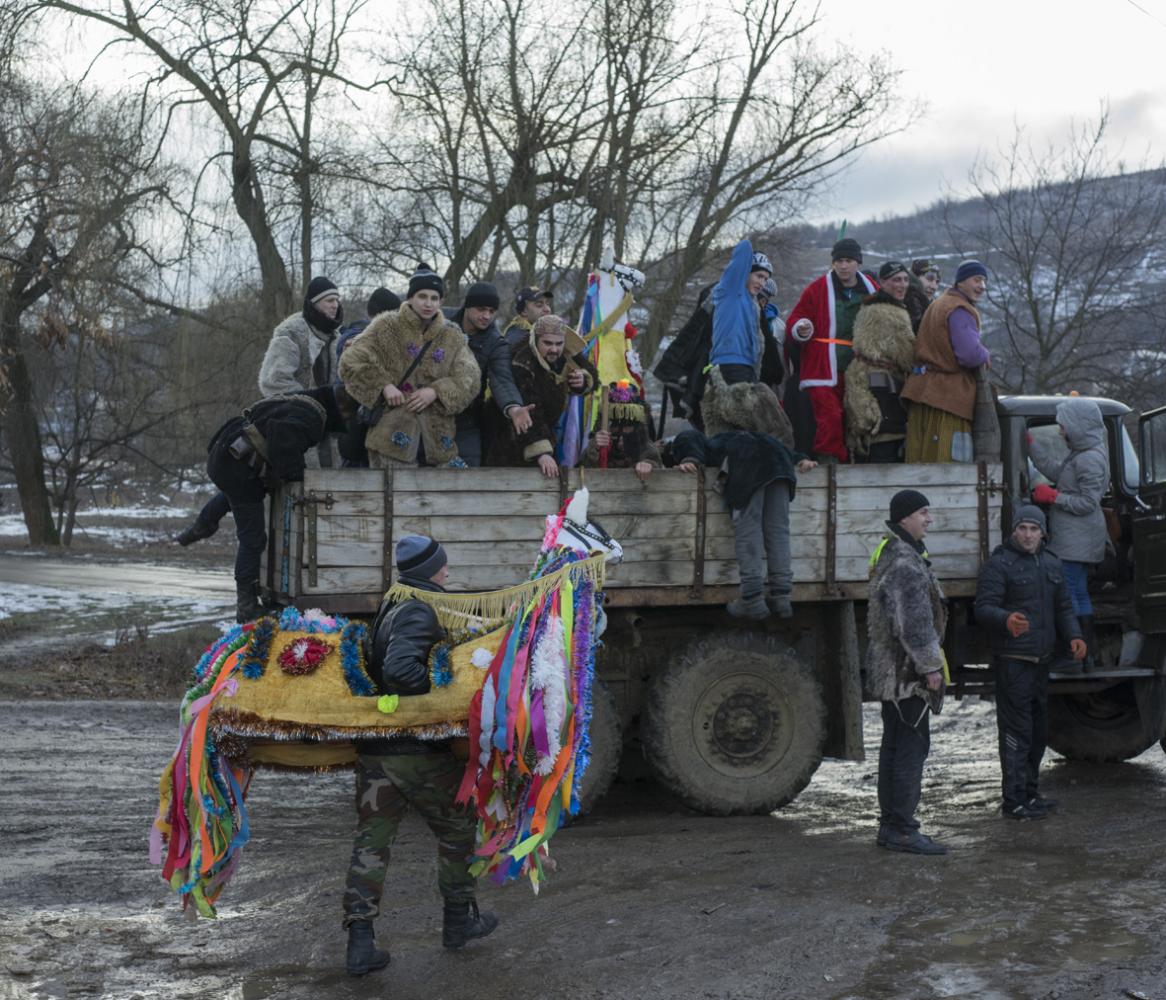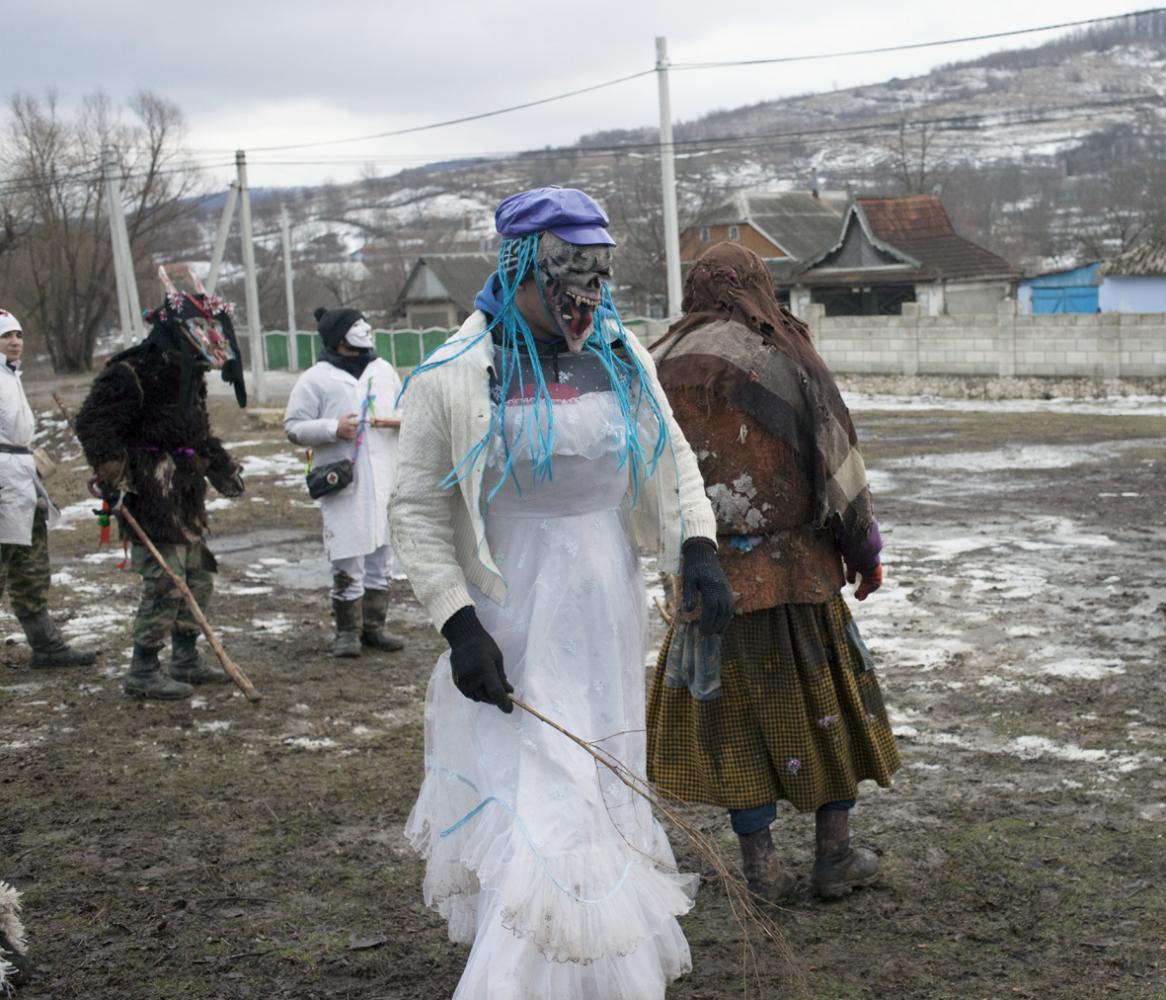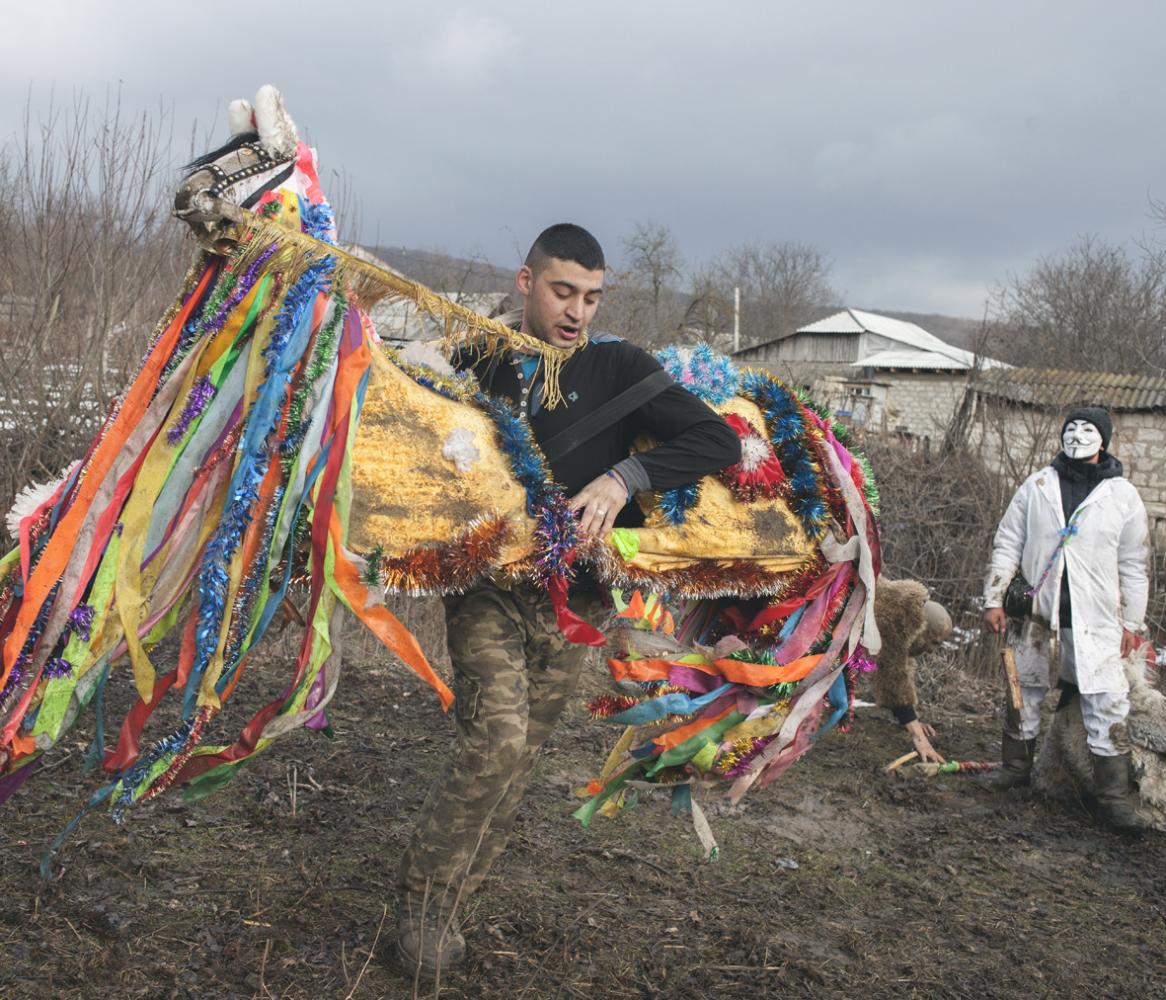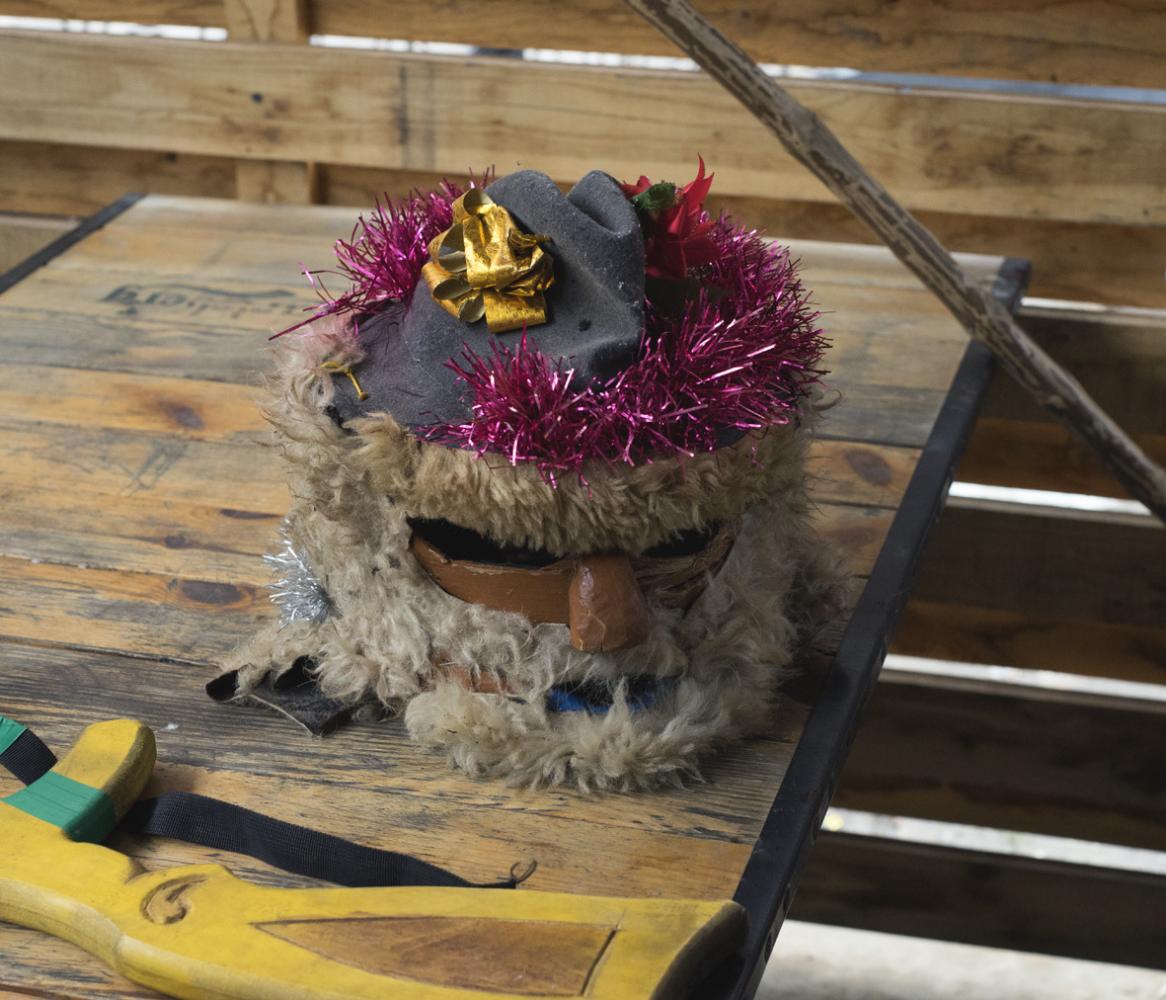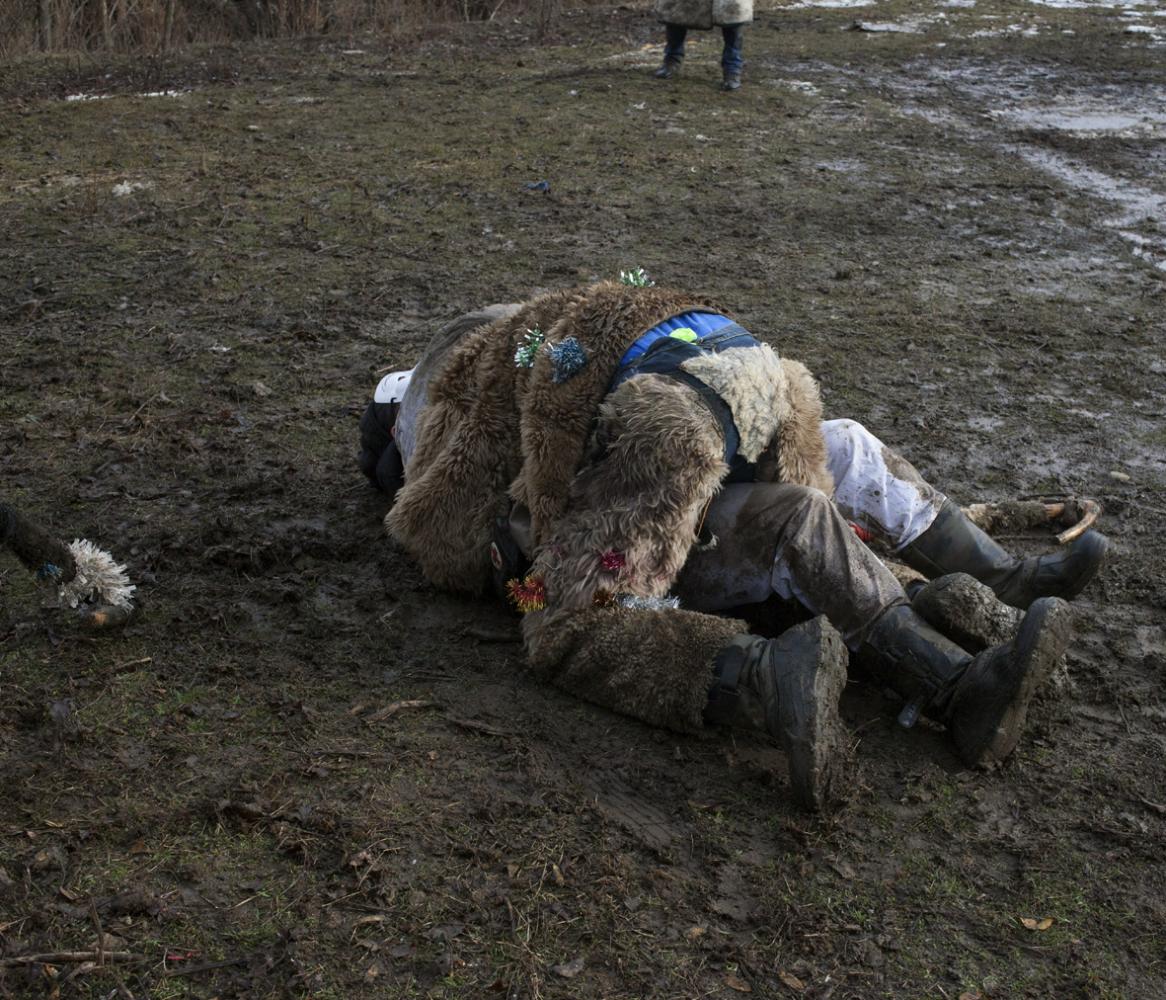Public Project
Malanca in Palanca
In the centre of Moldova the villagers of Palanca, descendants of Ukrainian provenance, celebrated on the 13th and 14th of January, the new year according to the Gregorian calendar. During these days the traditional Malanca was performed.
Malanca celebrations are of religious origin and are meant to bring joy, prosperity and a good harvest in the new year. A group of unmarried young men dress up and visit the families of the village singing and bringing them wishes. They perform as "Shepherd", "Old man", "Baba", "Priest", "Merchant", "Devil" etc.: most of those masks represent the society of old in a role-play; "Malanca", a beautiful, wise and admired woman, is always interpreted by a man. The songs they sing are about the legend of her life and her man Basil.
In the village of Palanca there are about hundred and fifty houses. Though nowadays many families and young people have left, the many engaged boys sing a whole night and day, going from house to house with their masks where they are offered sweets, food, wine and gifts. When the sun rises, they start bringing their wishes to all fellow countrymen named after the Saint of the day: Basil. The celebration ends with a battle, where the "Guţul horse", the main, good and brave character, fights against the scary masks, or bad spirits, and wins over them to protect the village.
Romanian and Ukrainian Malanca have slightly different customs; even regional variations are to be found. In fact, Palanca is one of three neighbouring villages where the Malanca is celebrated, and each one is different as the ancestors originated from different regions of Ukraine. Still, only unmarried boys are allowed to wear the masks of the Malanca: many came back from Russia, where most of them went for work, in order to keep this tradition alive: it doesn't matter how many months they spend abroad, they still call Palanca home, the village they were born.
4,501

